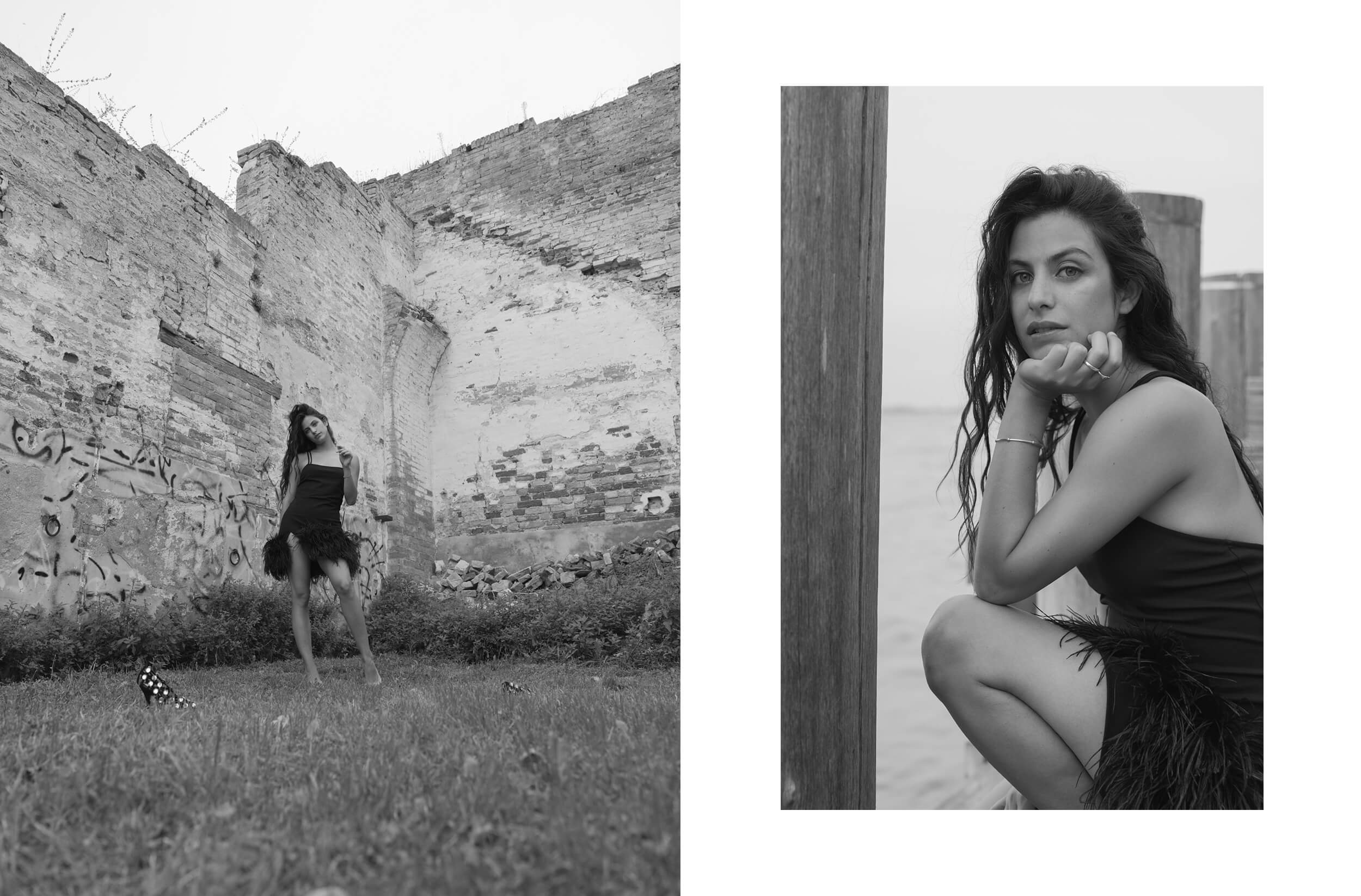In recent years, Fotinì Peluso has become a constant presence on both big and small screens. This month, in particular, we find her in two exciting and particularly formative projects, as she has shared with us. In the film “Dieci Minuti” by Maria Sole Tognazzi, loosely inspired by the novel “Per Dieci Minuti” by Chiara Gamberale, released in Italian theaters on January 25th, she explores the power of ten minutes each day to change everything. The film delves into the value of small gestures, which, despite being consistently praised, continues to be underestimated.
In France and soon in the rest of Europe, we see her in “La Tresse” by Laetitia Colombani: here, she plays Giulia, a young Italian involved in the world of wigs and an unexpected love story with a Sikh boy. A tale of three women, from three continents, united by a braid that intertwines their paths.
To these stories of women, guided by women, Fotinì adds not only her talent but also, and above all, her magic. The same magic that always prompts her to think with her heart and body, for an empathetic approach to both work and life.
What is your earliest memory related to cinema?
I went to see “Finding Nemo” when I was very young, and that’s my first memory in a movie theater. I was with my sister and my mom, and it was a lot of fun.
At home, we always watched a lot of movies, so there were family nights where we all watched films together, and perhaps that also developed my interest in cinema.
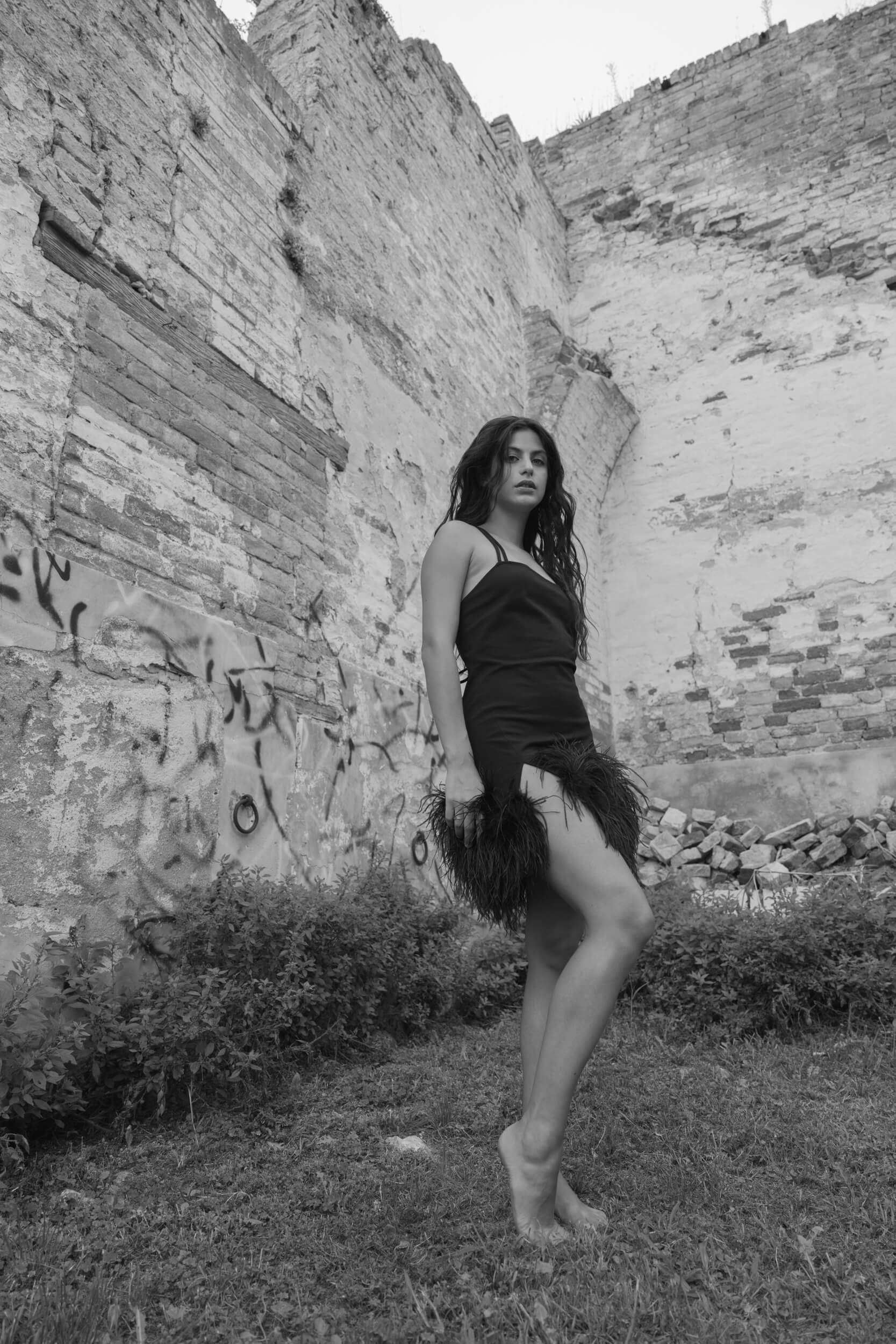
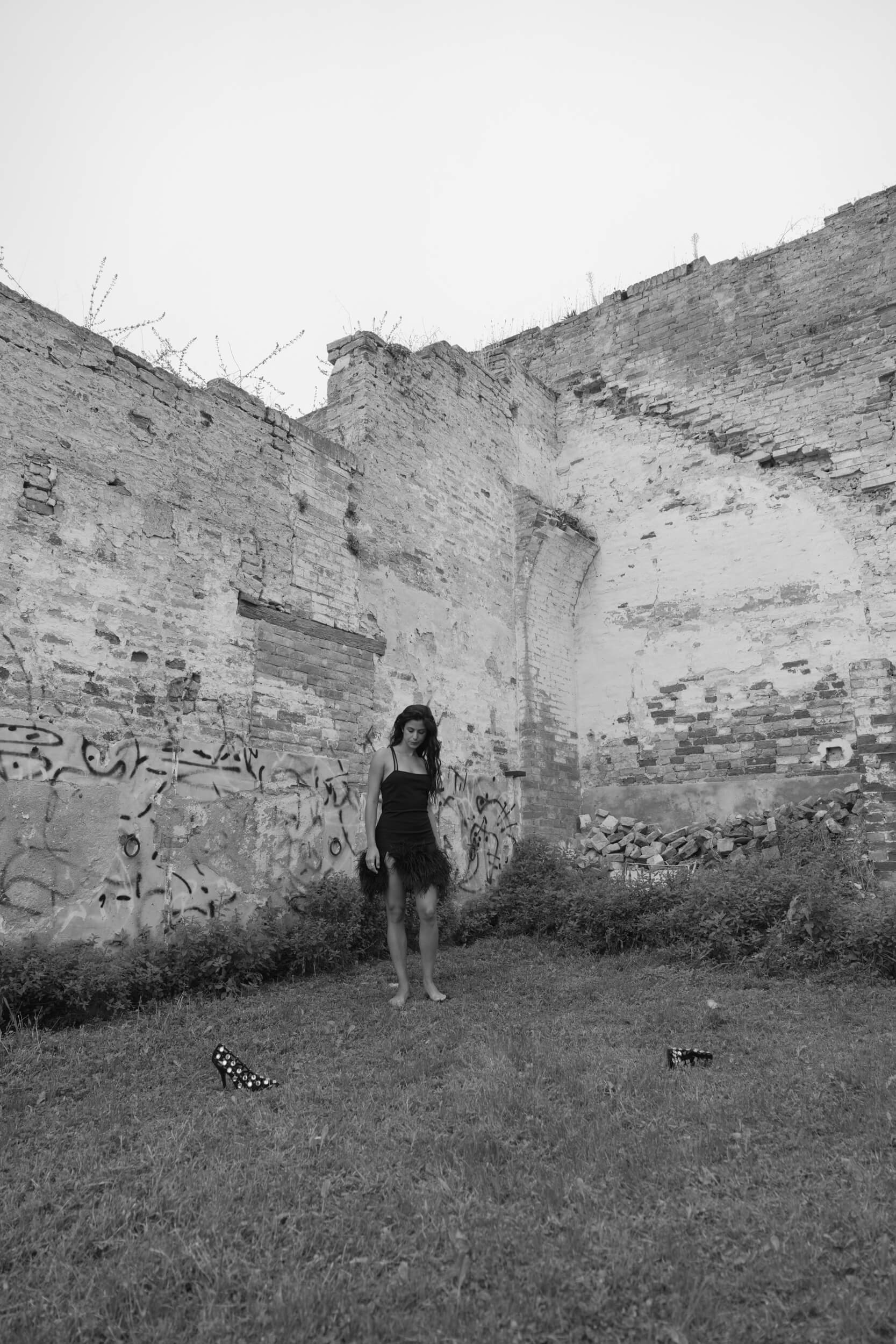
You’re one of the main characters in “Dieci minuti”, the new film by Maria Sole Tognazzi, scheduled for release on January 25th. The story focuses on the power of dedicating ten minutes a day to something new because change can occur even through this daily practice. Is there a moment in your life when a small change had a significant impact?
I think it all depends on the attitude we have in doing small gestures like having coffee in the morning. Waking up and taking care of oneself, I believe, is an act that can have a huge impact on our lives. Moreover, change is not constant; I think it’s cultivated, and it’s the quest I try to undertake every day of my life.
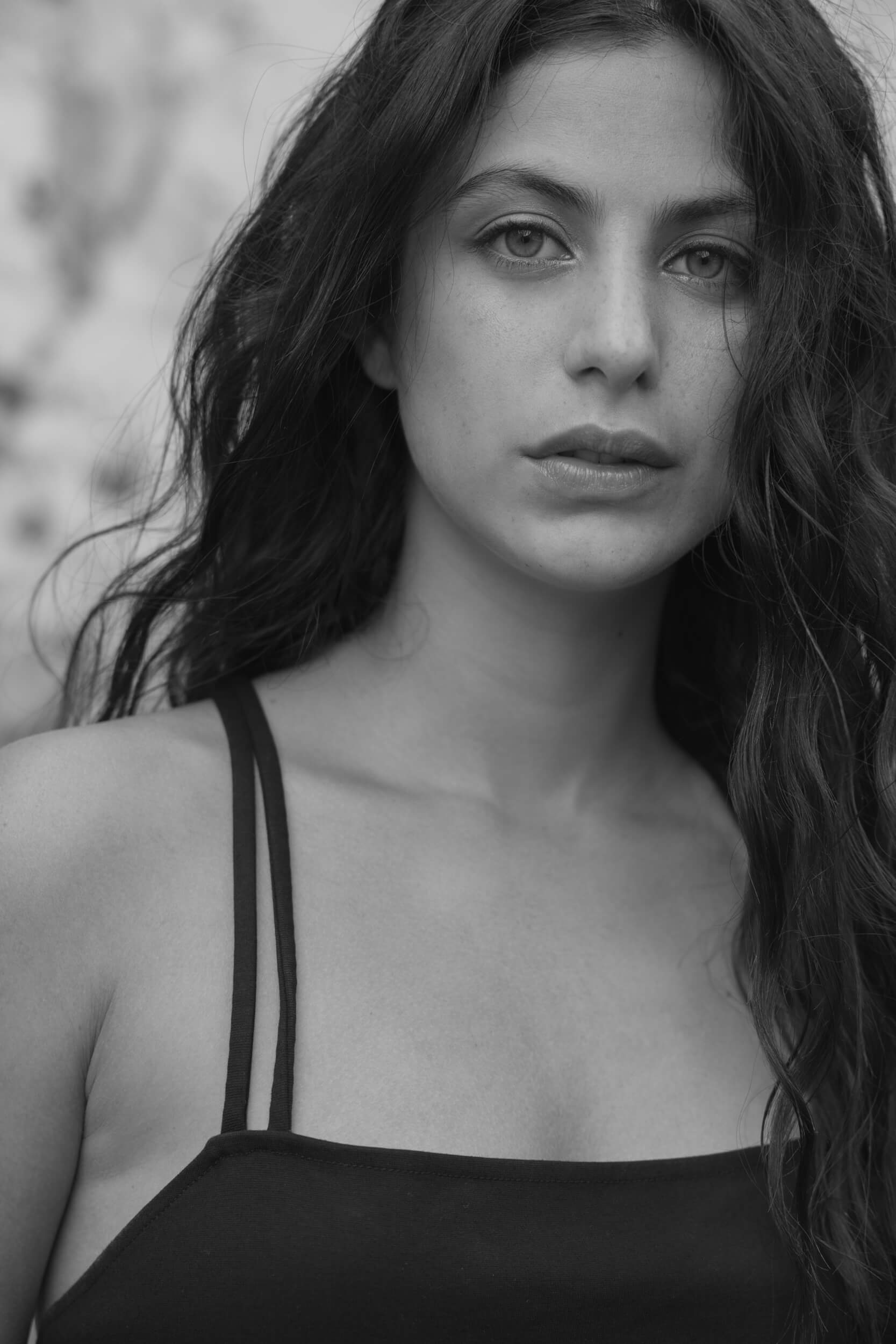
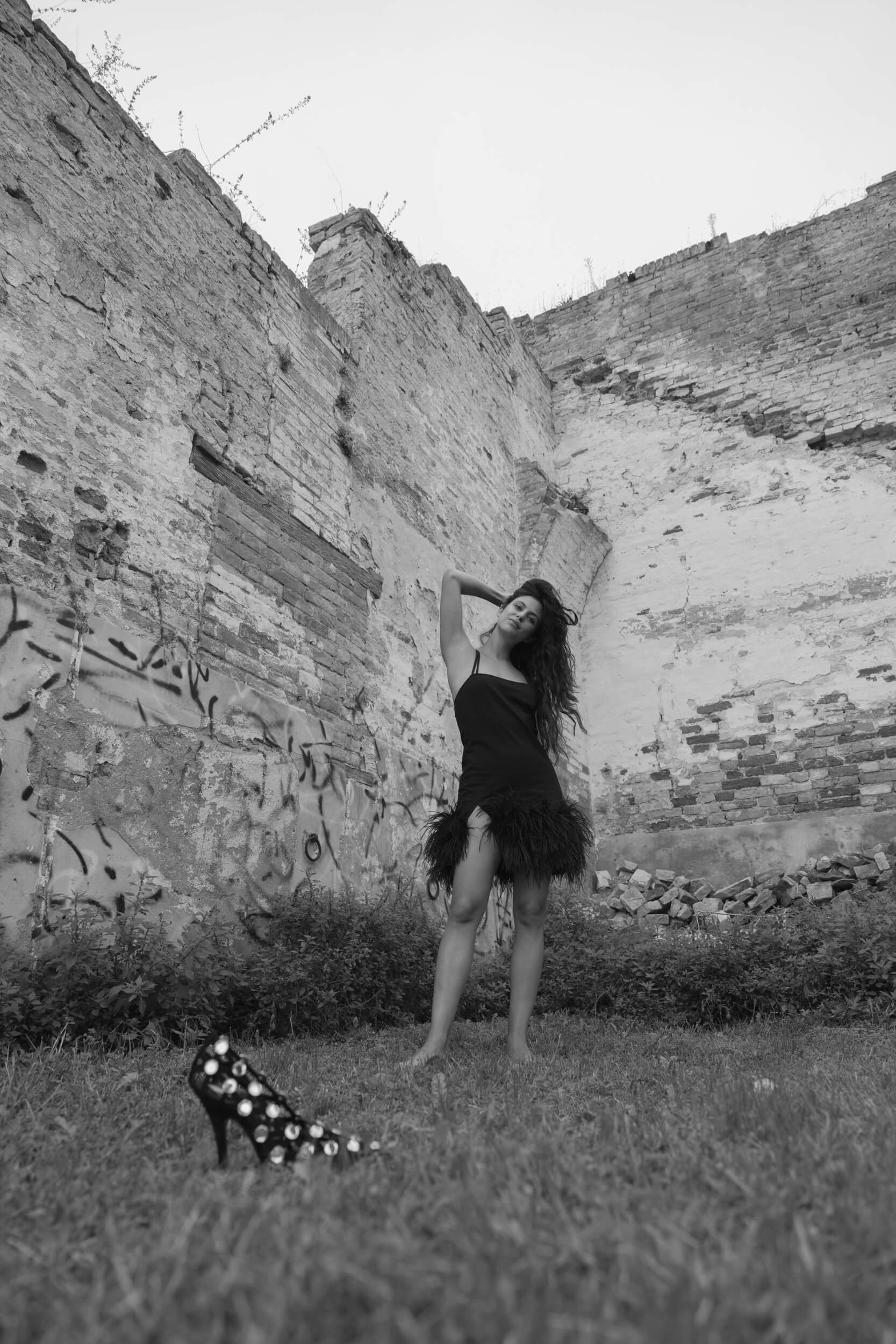
What can you reveal about your character, Jasmine, and her role in the events depicted? How much of yourself is reflected in her?
Jasmine is a very determined girl who had to fend for herself. Her father was never very present in her life, having chosen the other daughter, Bianca, played by Barbara Ronchi. So Jasmine had to make her own way; she is an enterprising and independent girl who doesn’t let others walk all over her. She has a great shield of irony and sarcasm, and what I found very interesting to portray is how slowly, in the character’s evolution, her vulnerabilities are revealed, which are also her strength because she has enormous sensitivity. She chooses to take care of this sister without even knowing her and dedicates herself completely. Similarities between me and her, for sure, determination; she’s maybe more badass. Definitely.
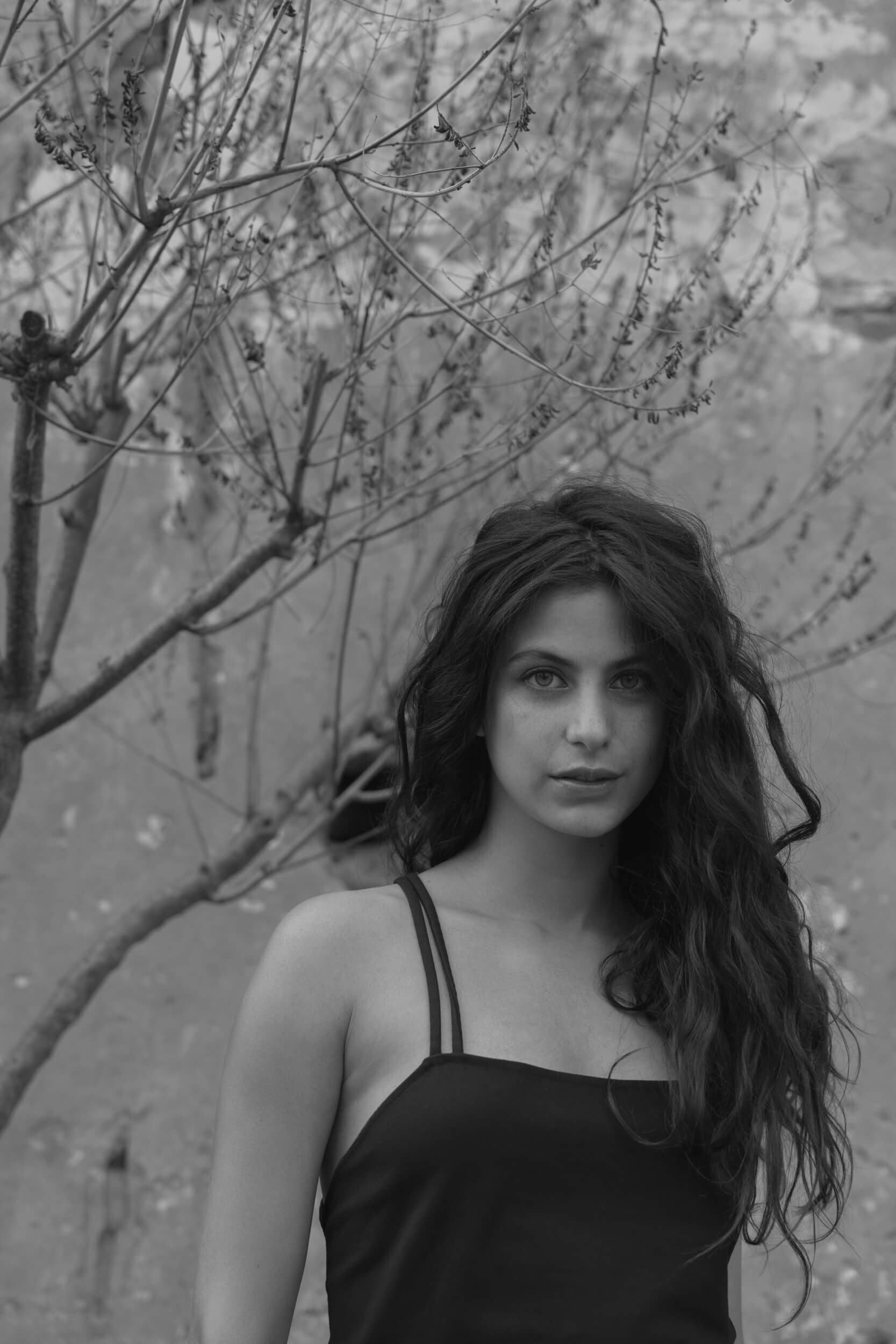
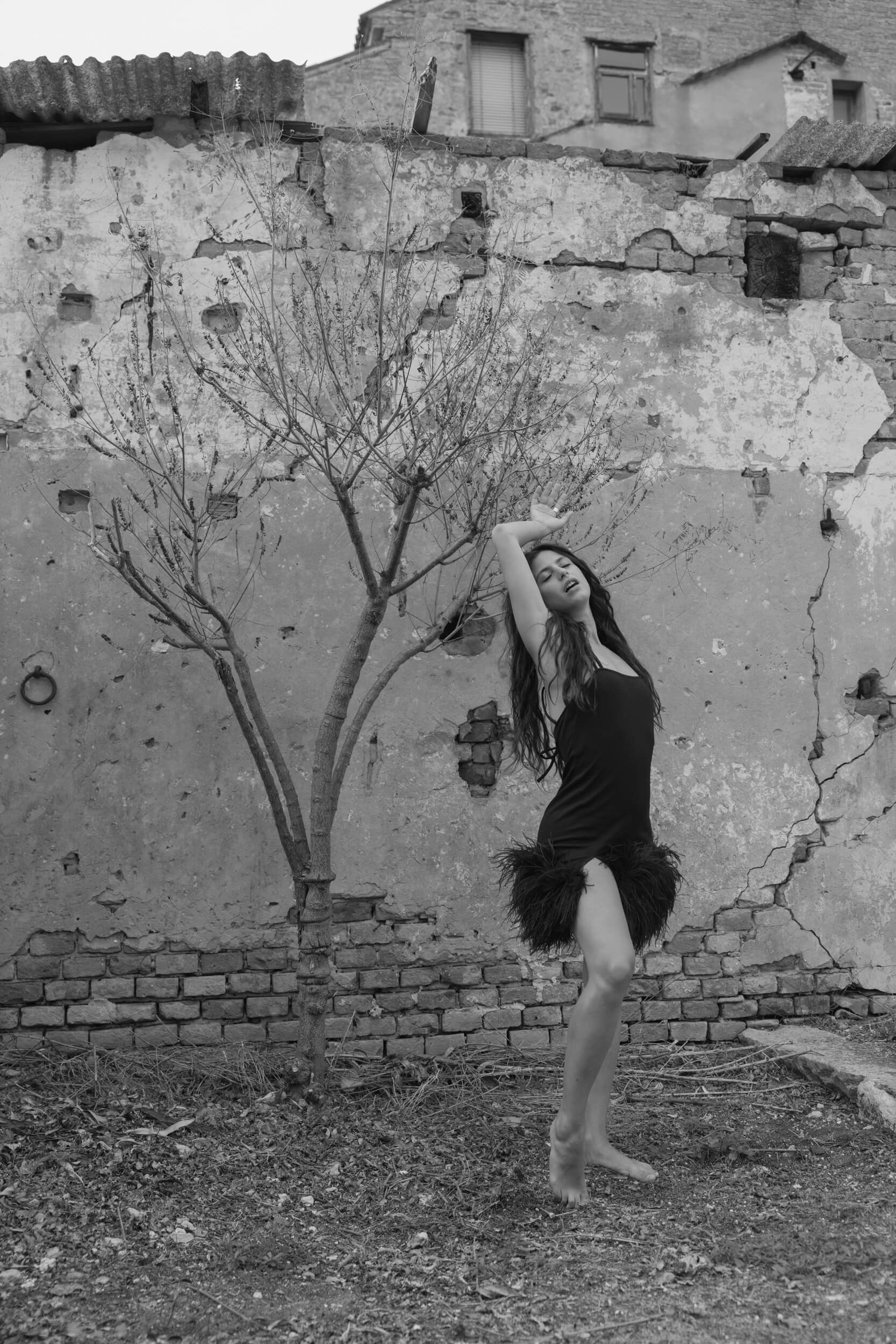
“a great shield of irony and sarcasm“
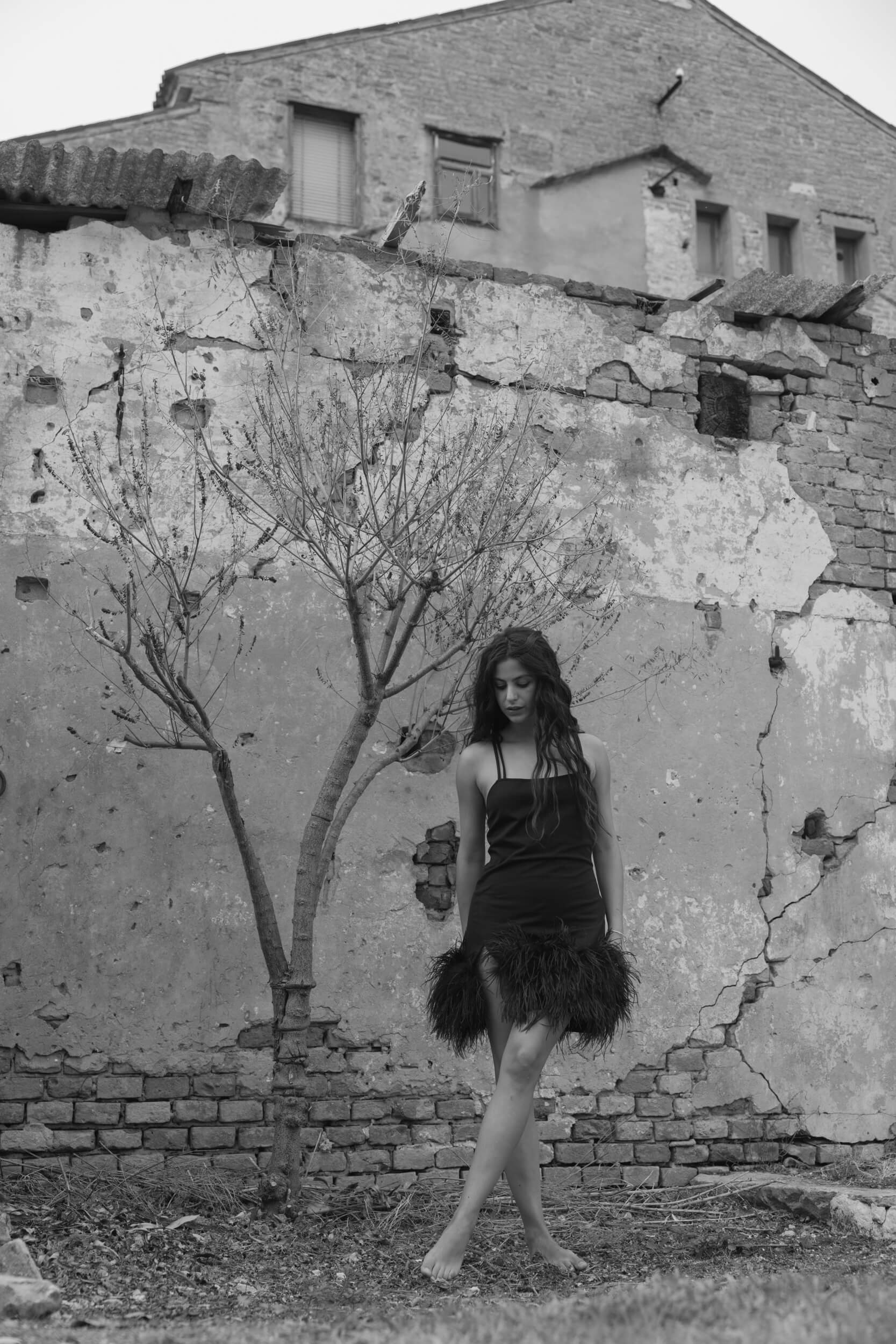
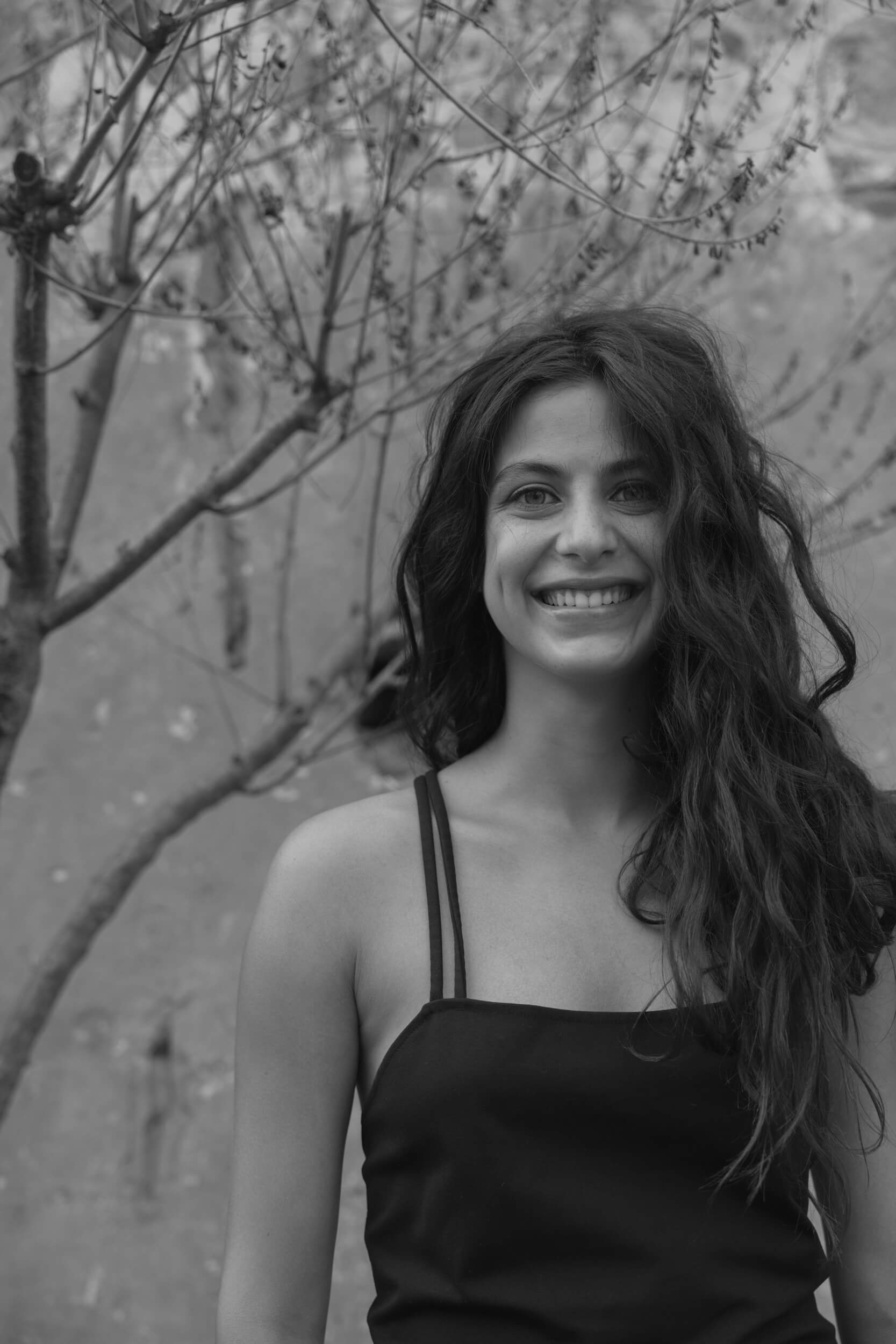
Have you personally experienced that kind of approach in your daily life? How do you think or hope this concept of “always finding time to dedicate to something never done” might influence the audience?
The approach to trying something new every day in daily life, pushing beyond our limits, is a personal quest that everyone should undertake to live better with themselves. Being curious and stepping out of our comfort zone, I believe, should be an aspiration for everyone.
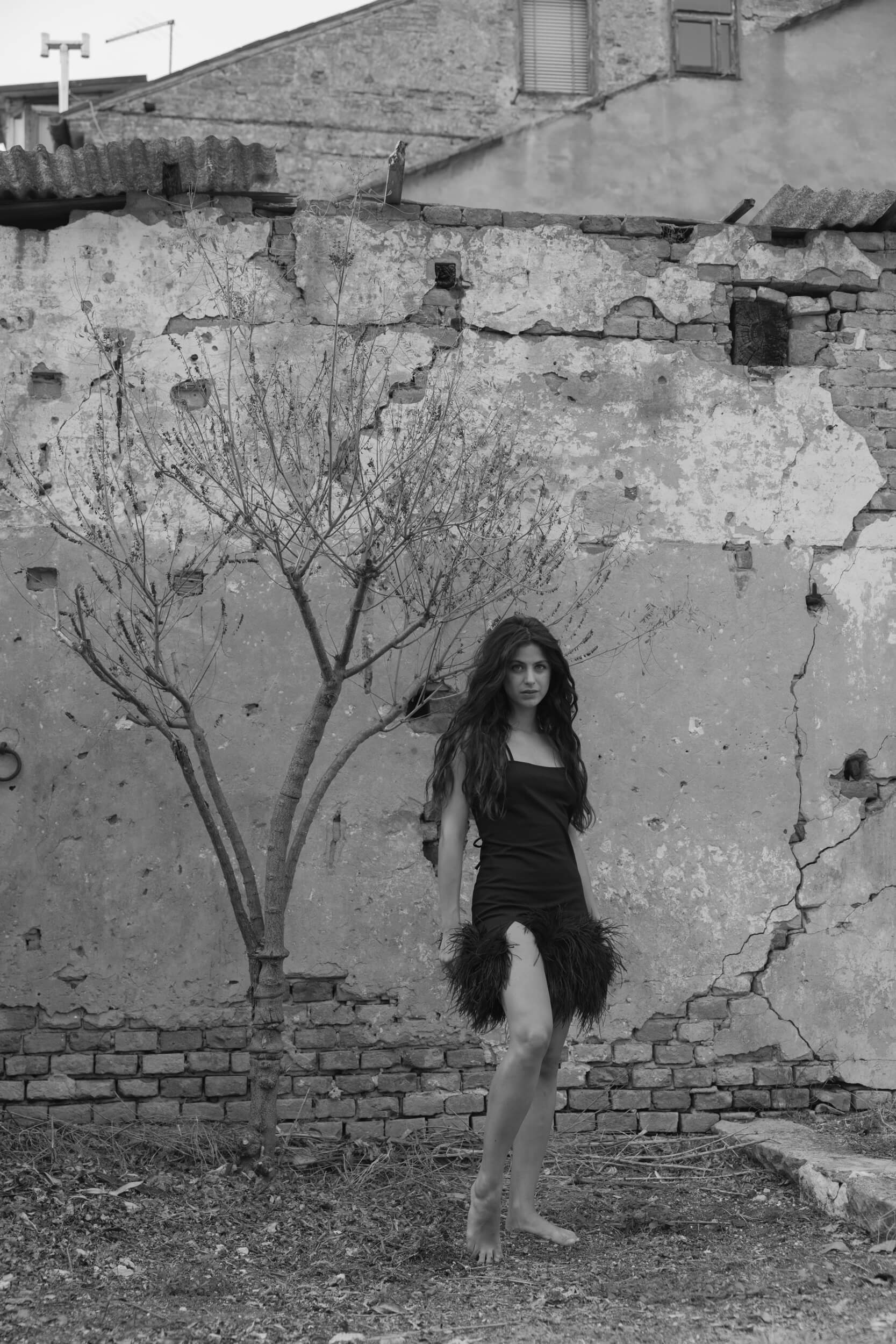
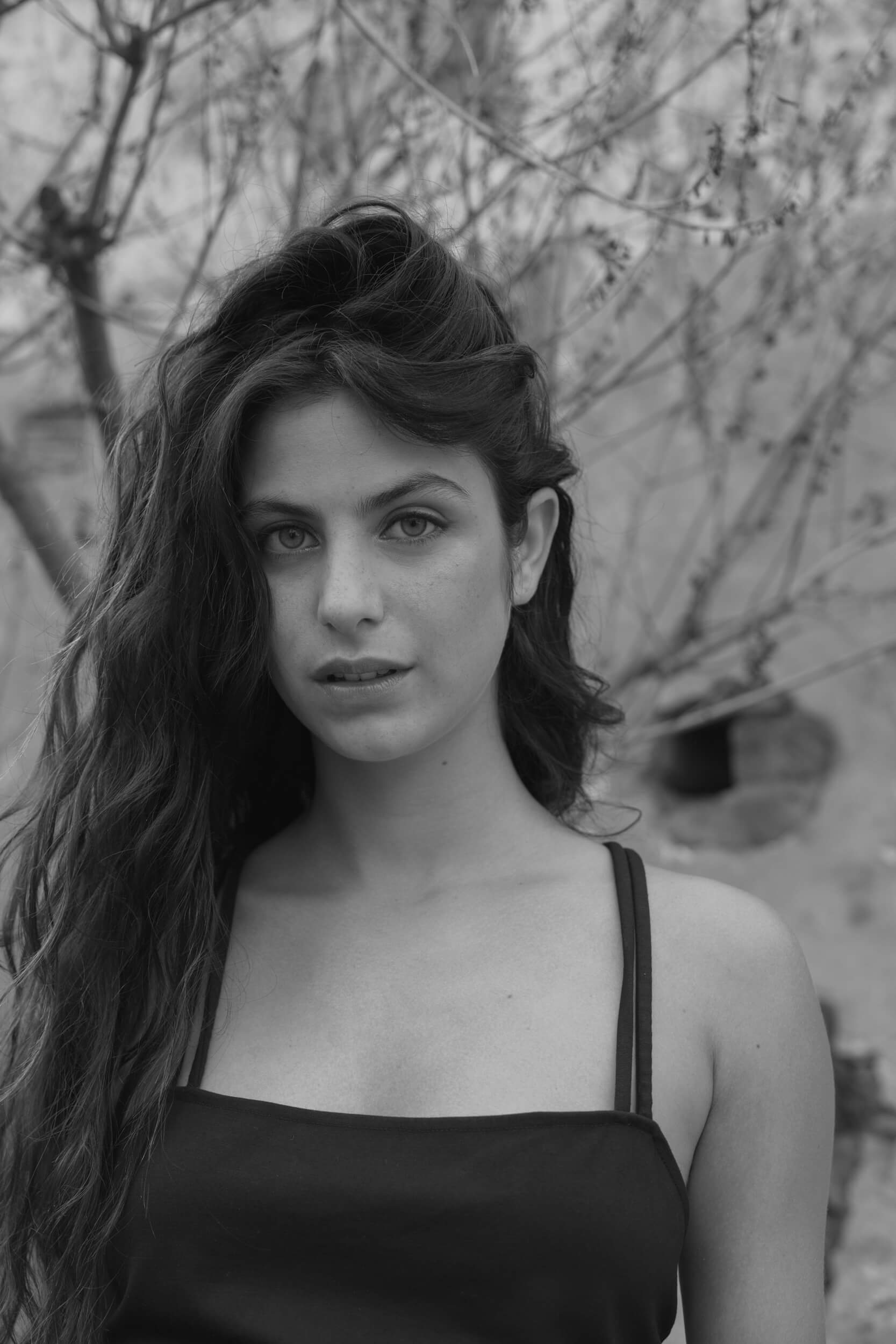
Thanks to this film, by Maria Sole Tognazzi, and another of your recent projects, the film “La Tresse” by Laetitia Colombani, currently in French theaters and soon to be released in Europe, you have worked with talented female directors. What has been your experience collaborating with them, and how have they influenced your performance?
For me, it’s very interesting to work with female directors who, as different as they may be, share a certain perspective. There are important themes for our generation of women that I find directors are very good at identifying. In their own way, both of them wanted to portray strong and independent women who want to try to shake off the role assigned to them by society and find their place as human beings and women.
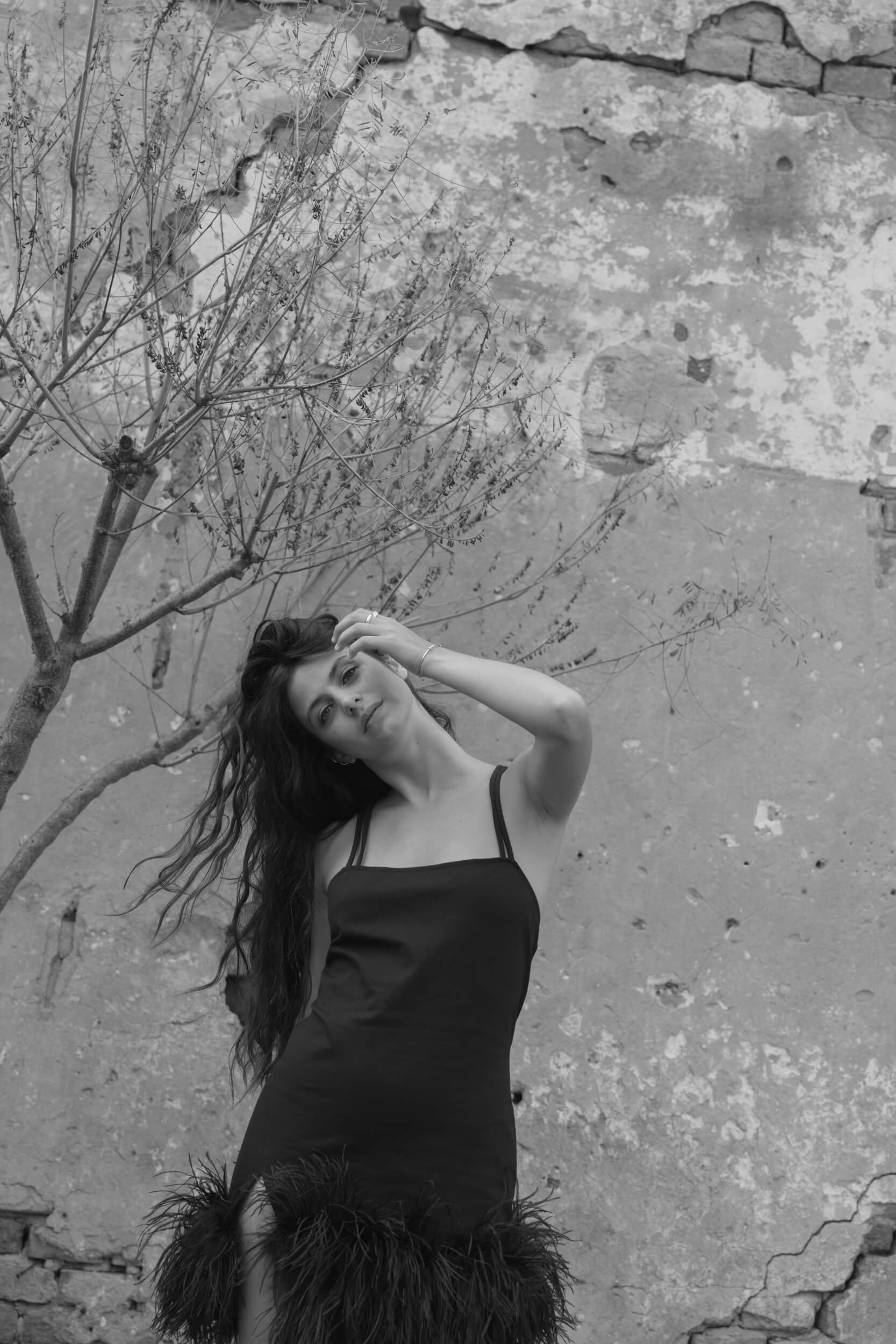
In “La Tresse,” you play Giulia, a girl working in a small family workshop that deals with and sells hair for wigs. When her father dies, it is revealed that the business is full of debts, but she is determined to take over the company and renew it. How did you approach the preparation process for the role, considering the complexity of the character and her evolution throughout the story?
Playing Giulia, my character in “La Tresse,” was a very interesting journey because director Laetitia Colombani was extremely open to dialogue and script modifications. The script already had all the essential elements to portray the character, but many aspects were modified in light of the dialogue with her and the other actors.
Certainly, being able to build a character together with such an open mind and flexibility allowed me to enrich the character on the fly. It was challenging to prepare because I had just finished a very long project, “Greek Salad”, and we had an intense week of preparation. Giulia’s character undergoes significant development in the story, and building the character so deeply, I believe, is also due to the period in which I filmed the movie—a time of profound flow of ideas and transitions from one project to another, which I found very fruitful.
“…a time of profound flow of ideas and transitions from one project to another, which I found very fruitful.”
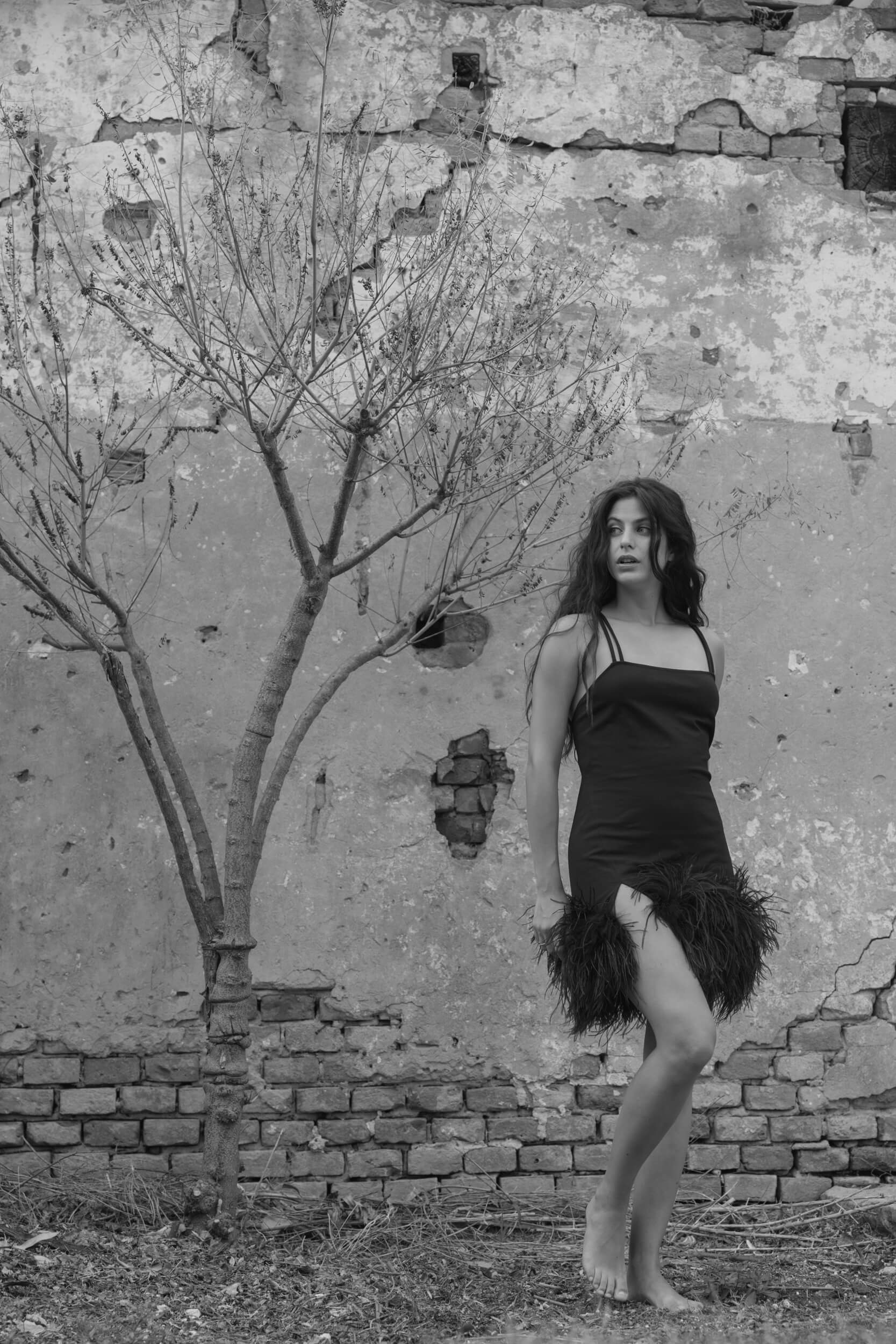
What is the most fascinating aspect you discovered about your character?
The most fascinating aspect, I believe, is that to move forward and redefine her new role in society, reshaping herself to become the person she wants, she doesn’t need to deny her origins. Her evolution is a perfect blend of the tradition she comes from and the innovation she wants to bring to her life, progress. I found this very moving because sometimes we tend to bury the past to build something new, but the strength of this character is in remaining deeply anchored to her roots while always renewing herself.
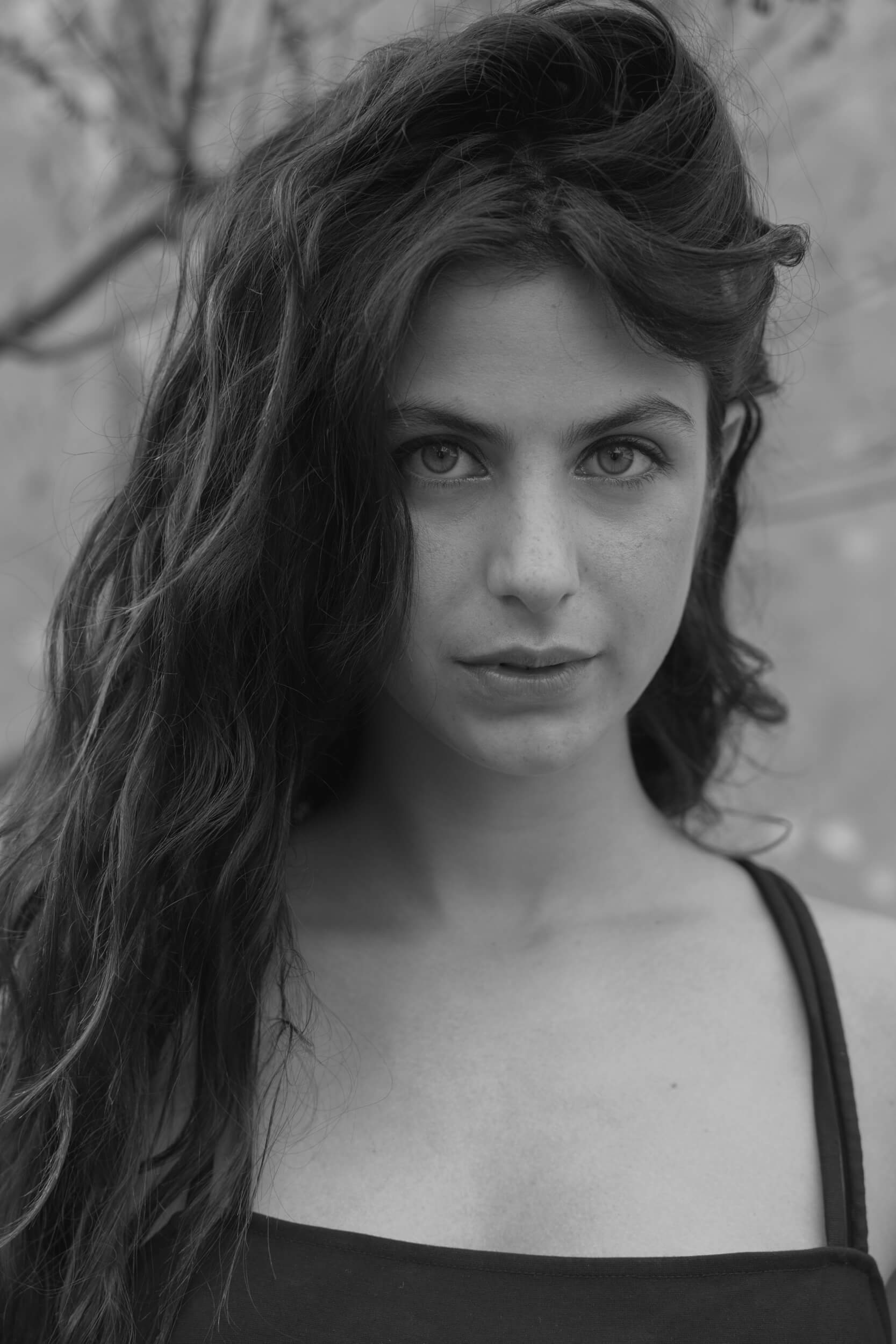
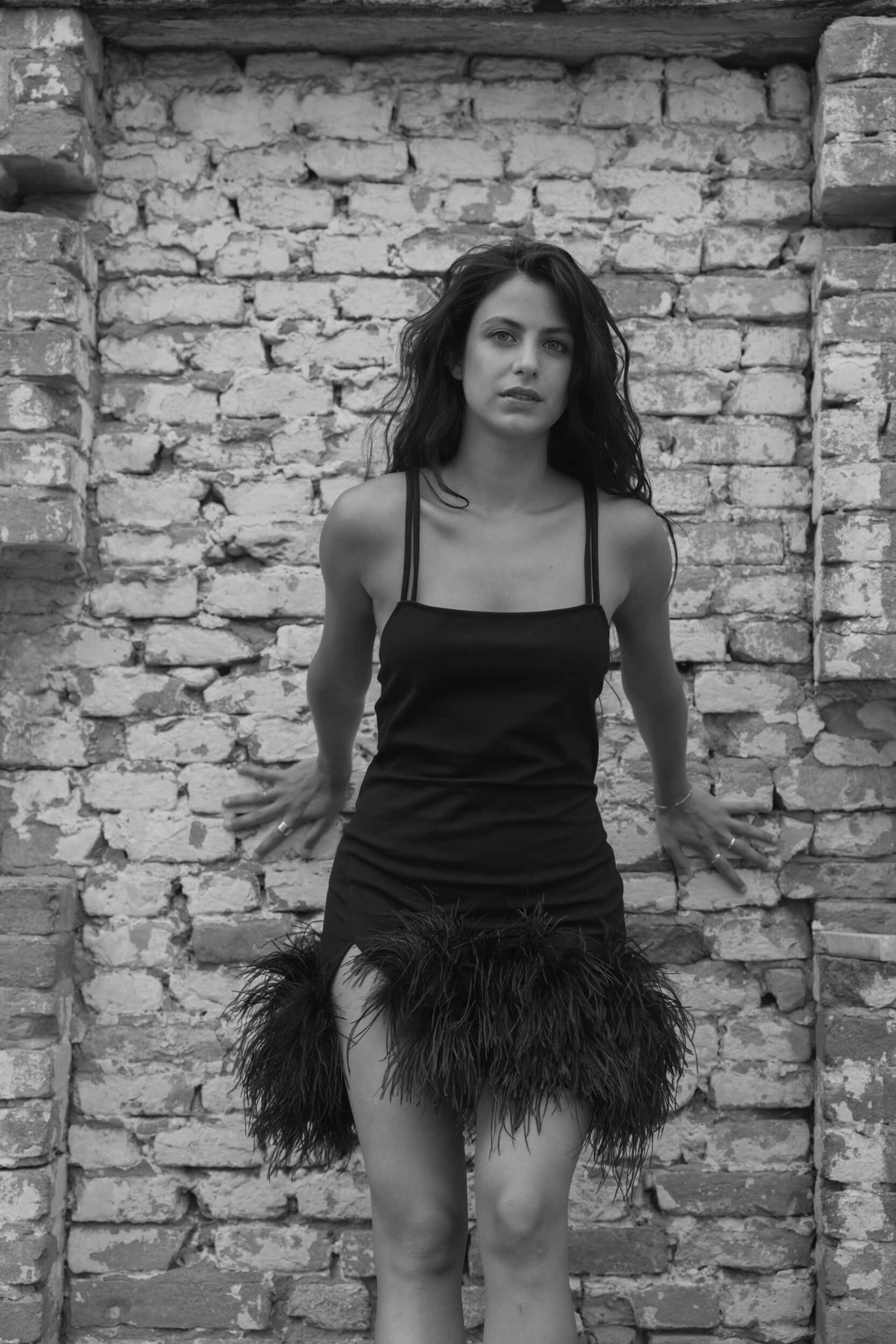
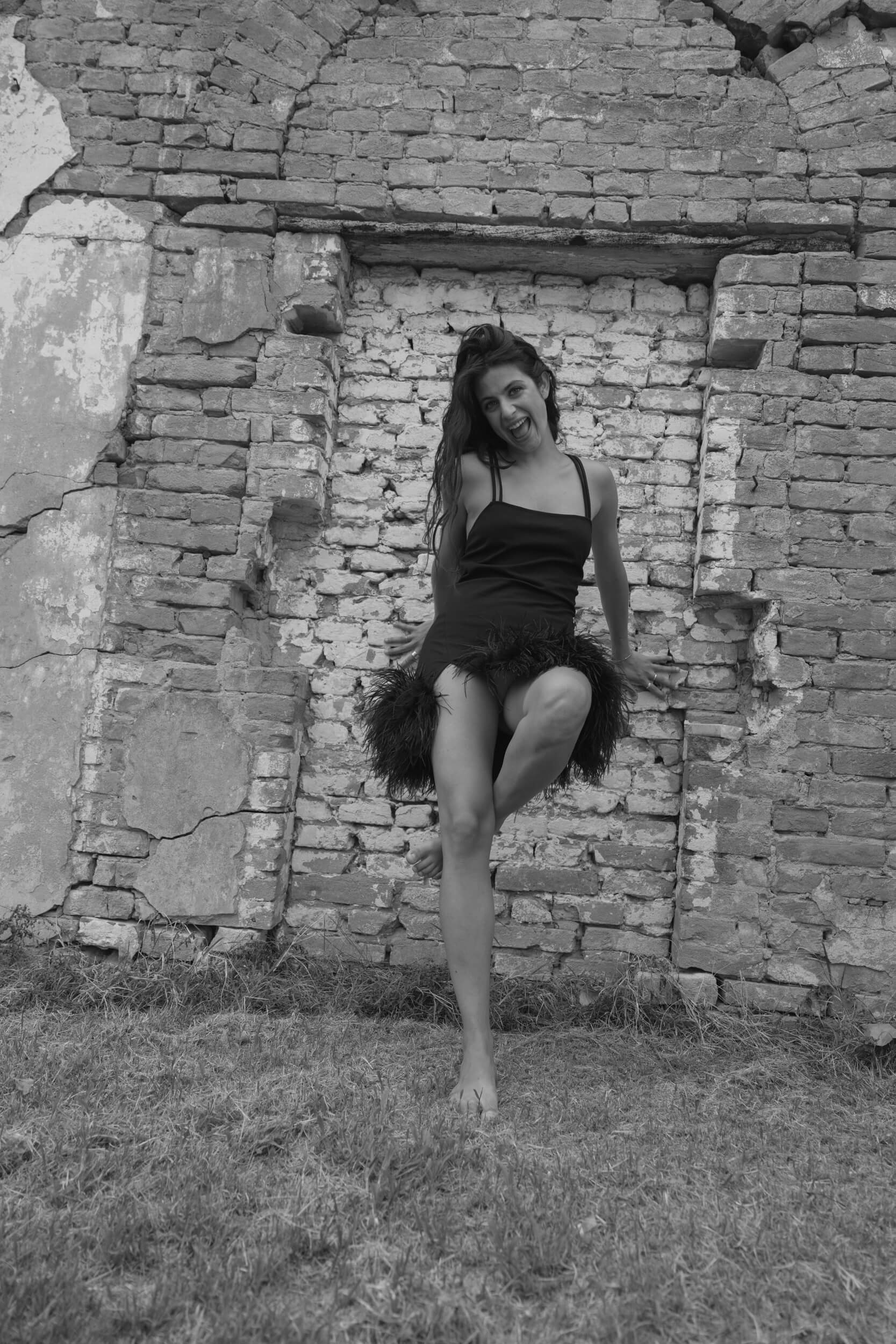
“La Tresse” tells the stories of three women who, although never meeting, are connected by a common thread. How did you manage the relationship with other characters without sharing direct scenes with them?
It was very interesting to shoot this film also because of the deep bond between the three protagonists who never meet, and even during the filming, we never met because we shot in different countries: Italy, Canada, and India. The incredible thing is that for me, the empathic connection with these women was always very present, both as an actress and as a character. Laetitia Colombani never lost sight that the film was all interconnected—relationships between these women profoundly influenced the story and its message. So, it never felt like I was making a film alone. They were always very present. We initially got in touch online, and I was the first to meet both of them. When we saw each other for the first time all together during the premiere in Paris, it felt like I had known them for a lifetime. Working so intensely on characters while considering the role of the other, even if not physically present, I believe developed a connection between us even before meeting in person.
The three protagonists come from different continents. How did the cultural diversity of the characters and their backgrounds enrich your acting and life experience?
In general, I find that confronting ourselves with different cultures, languages, people from different social classes, environments, and professions is something that can only enrich us in life and in storytelling. At the same time, for me, it was a gigantic stimulus. This is also what the film wants to highlight: to show the audience this mix, these differences, but also make us understand that there are universal conditions. The deep core of being human, therefore, is that we are all the same.
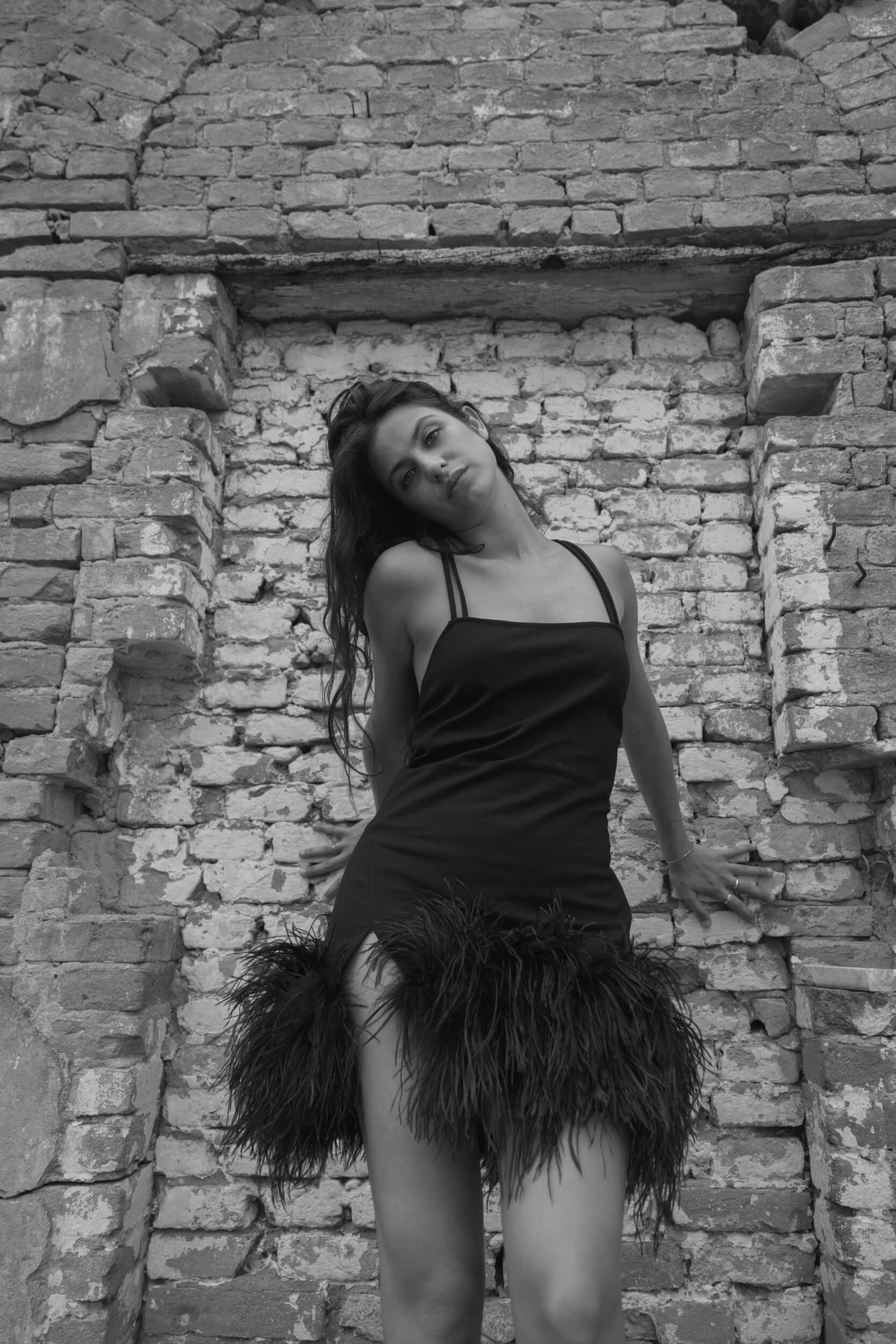
“The deep core of being human, therefore, is that we are all the same.”
Both films, “Dieci minuti” and “La Tresse,” address universal and profound themes. What attracted you most to these projects, and in general, what makes you say yes to a project?
There are many aspects I would consider, but in general, I believe that anything that enriches me as a person and teaches me something new is a valid project for me as a human being first and then as an actress. I really like change, and the most fun and interesting thing about my job is being able to play different characters. In projects like “La Tresse” and “Dieci minuti”, a factor that played a very important role for me was that they were directed by women and addressed universal themes that are close to my heart as a young woman
I think these topics are not discussed enough, and it’s always important to strive in that direction. These were themes that I felt very close to, and it was a huge motivation, along with working with two incredible directors.
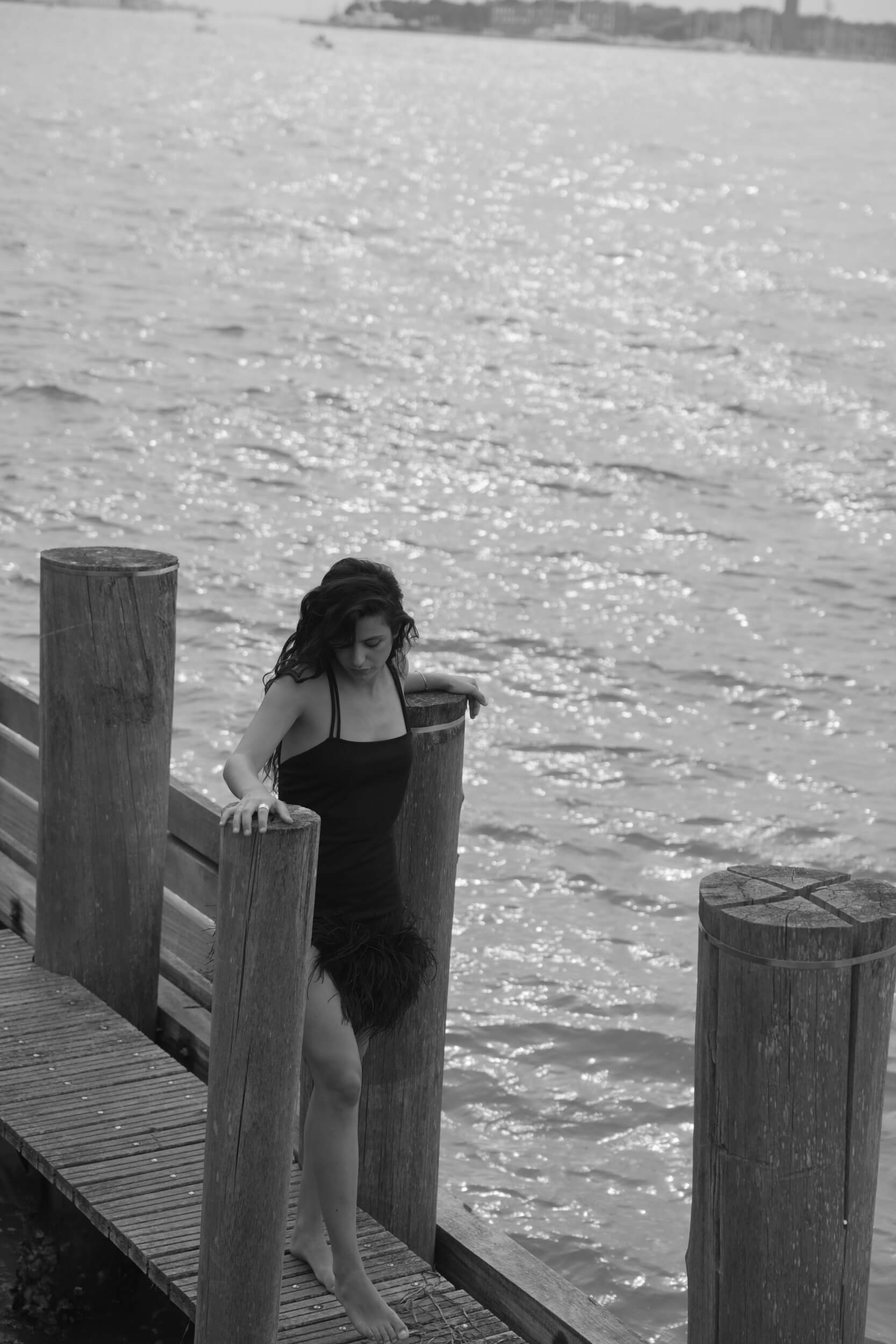
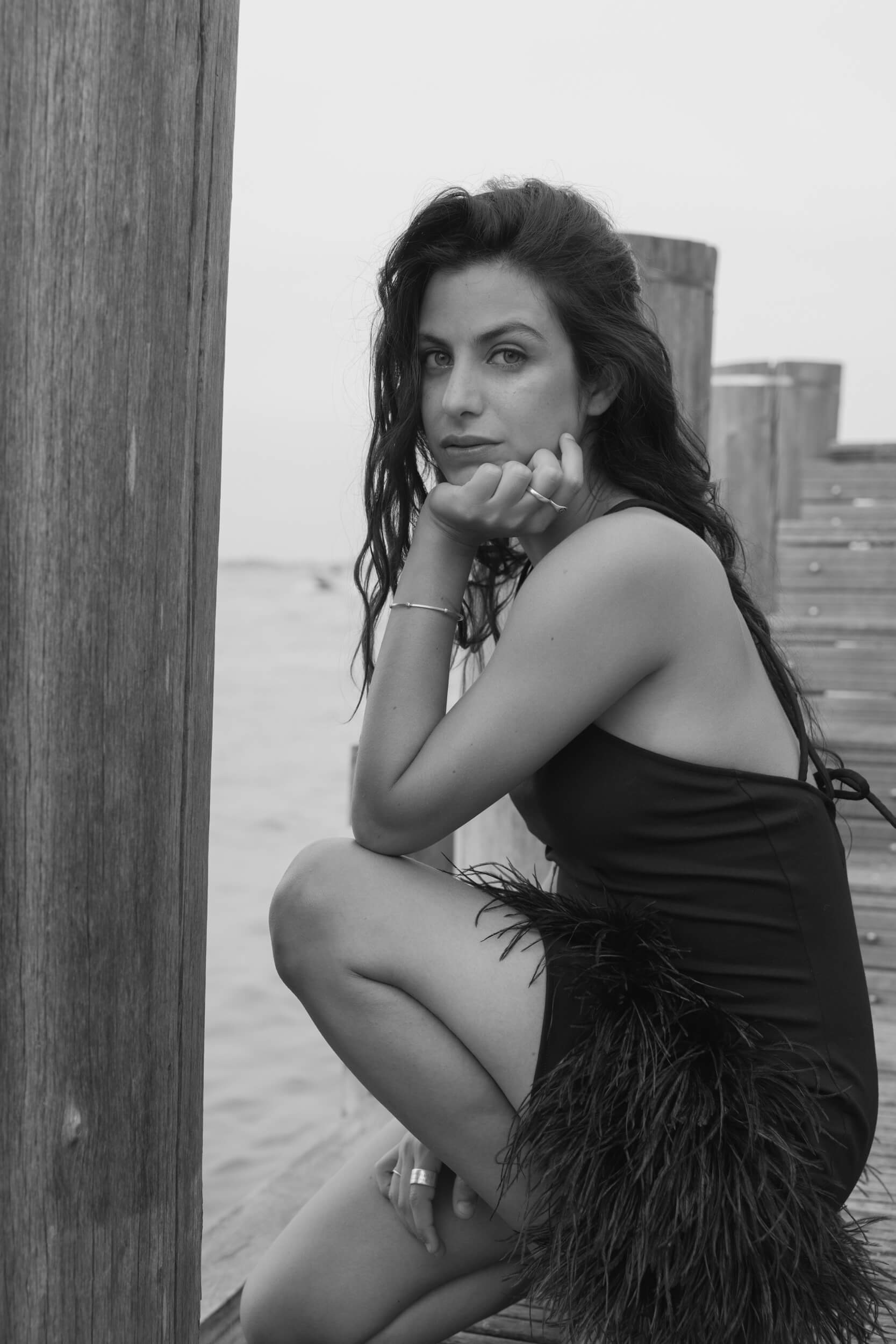
These are stories of change and growth. Have you noticed any personal changes in your approach to acting or in your life during or after the realization of these projects? In other words, what have you discovered anew about yourself?
I think all films leave something that we carry with us, and some roles stick under the skin. From all new experiences, you learn something, and from these projects, in particular, I realized, as a girl, how important it is to talk about certain themes that I would like to see become somewhat outdated, like redefining one’s role in society as a woman. For “Dieci minuti”, the discussion is slightly different because the protagonist also redefines herself in light of her own existential crisis. However, I realize how important it is to talk about it, and I believe it’s a struggle that should be fought daily. Perhaps these projects made me aware of how change should be constant and start from small gestures, and in my life, I try to move in that direction as much as I can.
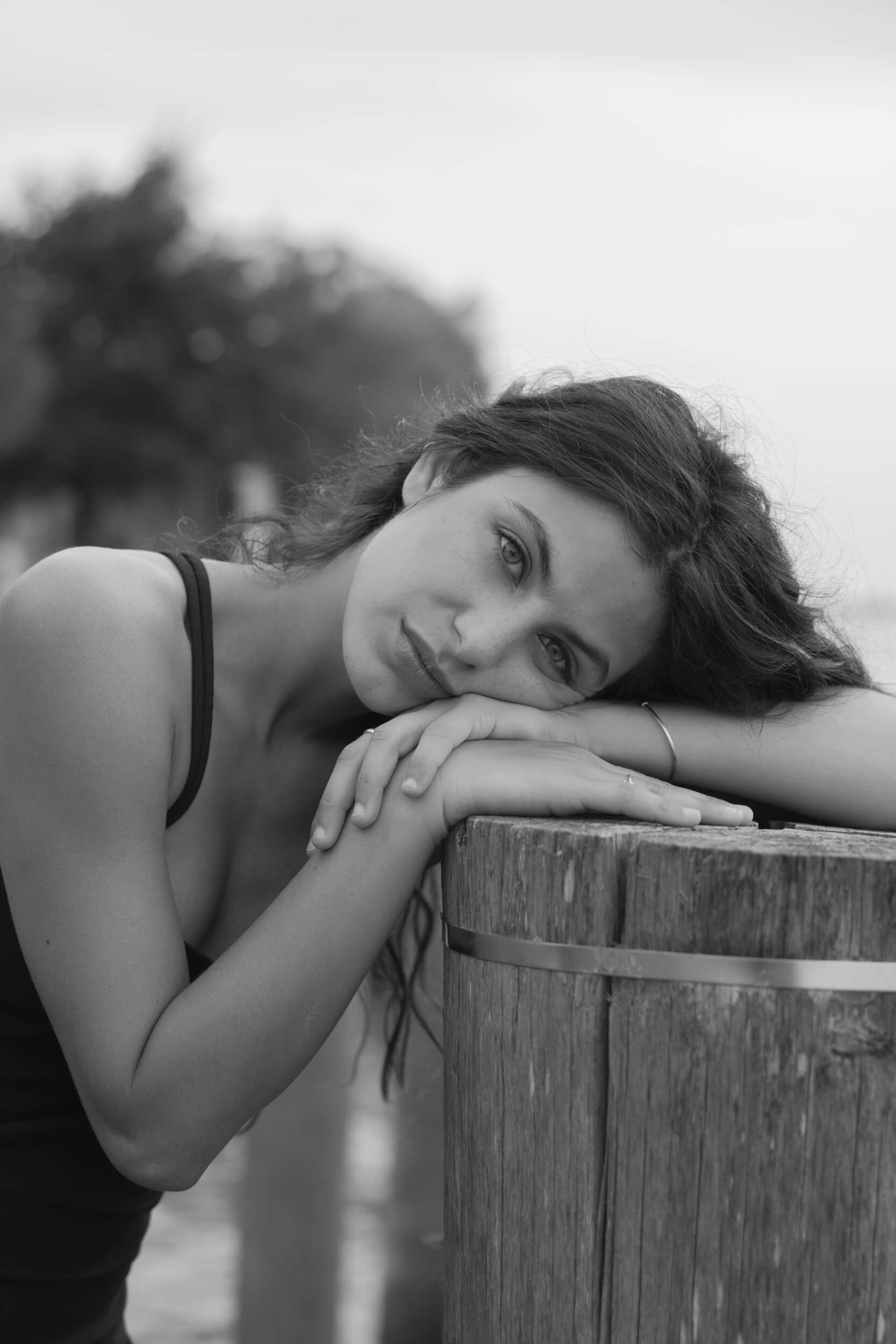
How do you handle the emotions that arise when you portray stories or scenes that are particularly significant, dealing with delicate and profound themes? Do you tend to be more rational or let yourself go with instinct?
I am a very rational person, so that’s my inner conflict: on one hand, I have very deep emotions, but they are grounded by my rationality. The challenge for me in my work is letting go, not thinking with my brain but with my heart, with my body. One thing I’m realizing is that the body is always right and is right much earlier than the brain. In our society, we completely neglect this. This is the challenge I face when trying to portray any particularly emotional role, and I find great liberation when I actually manage, even though it never reaches 100%, to express myself and say something through acting and my emotions. I must say there is immense satisfaction in letting go a bit.
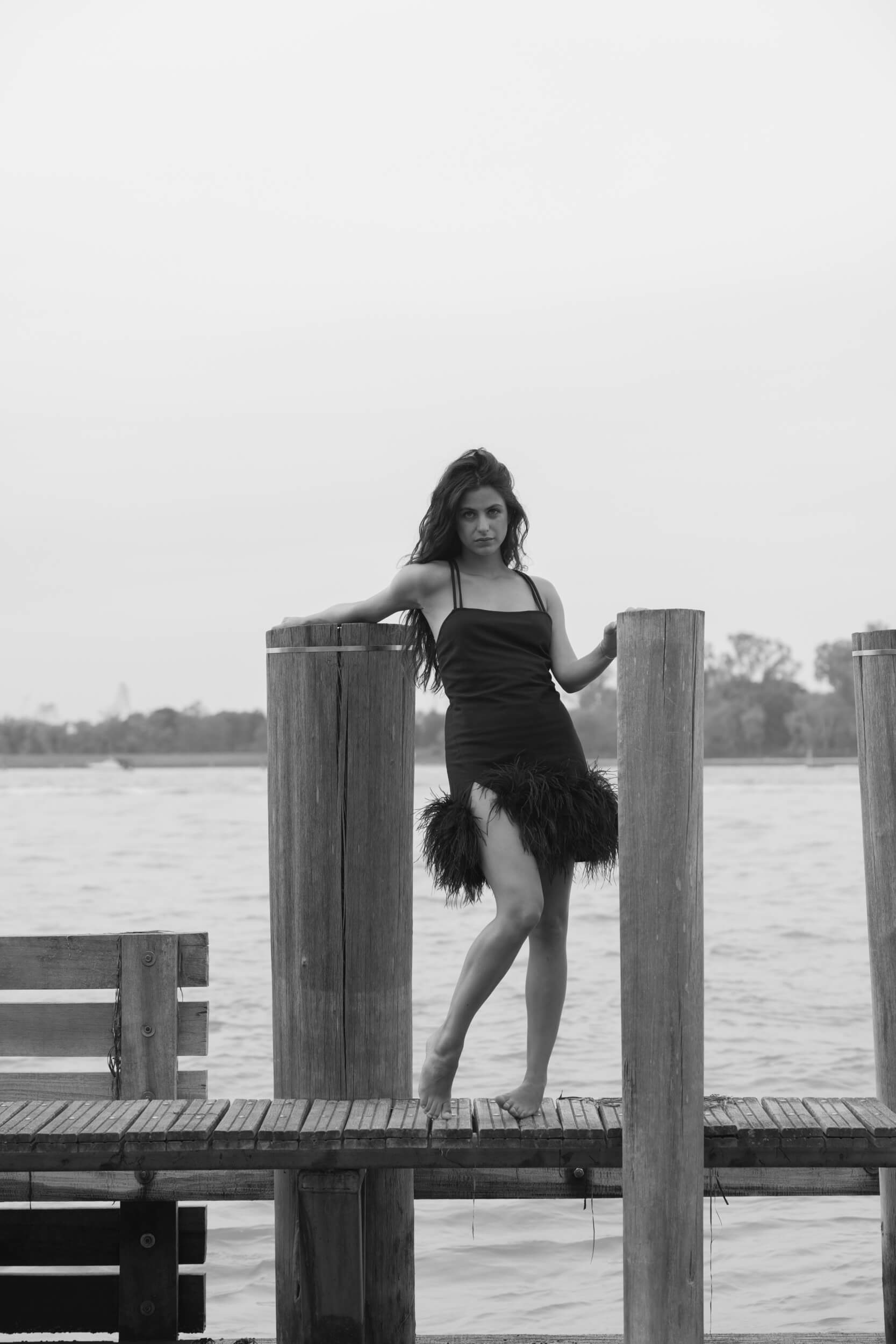
“The body is always right and is right much earlier than the brain”
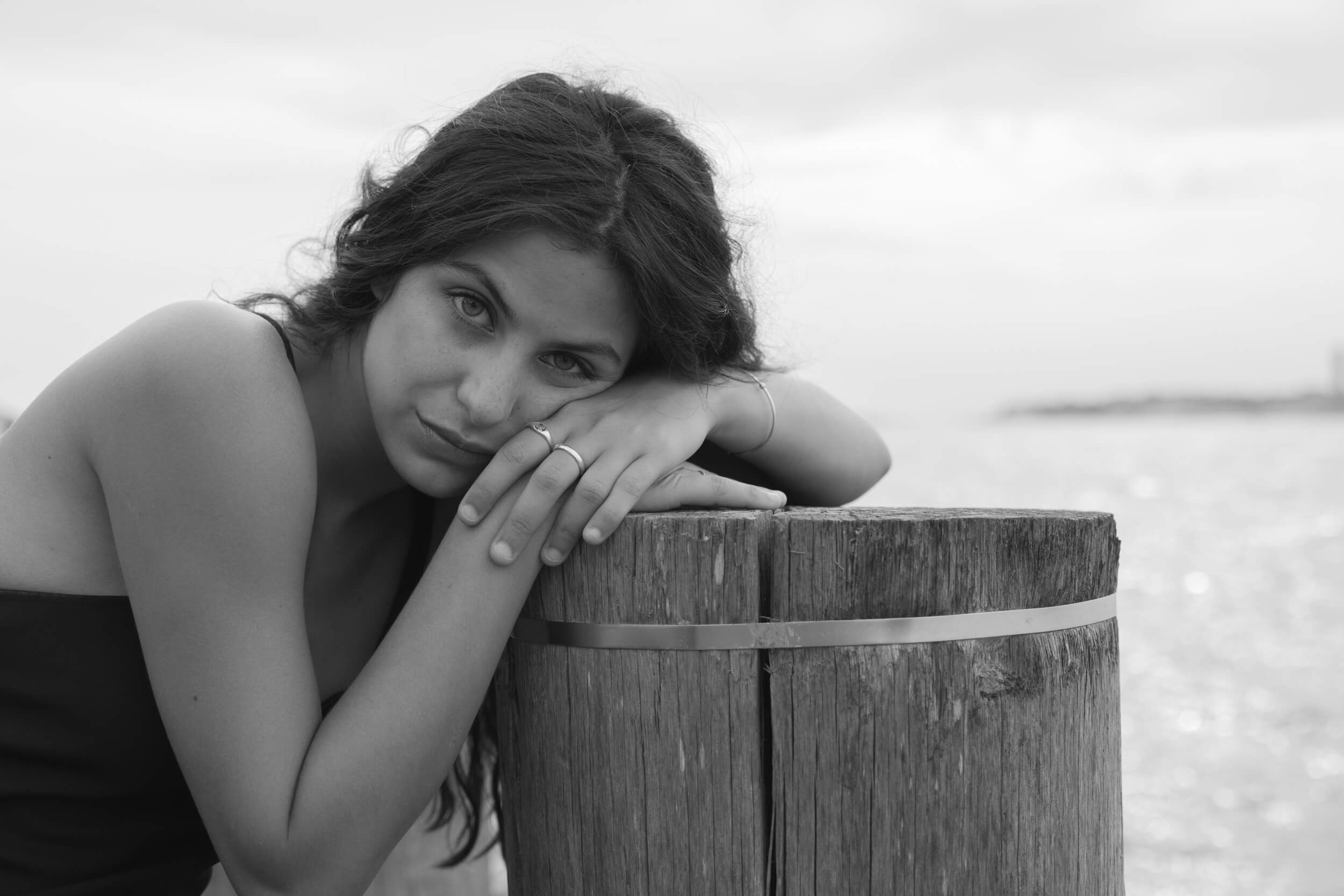
The book on your bedside table right now?
The book on my bedside table right now is titled “The Most Secret Memory of Men” by a Senegalese writer named Mohamed Mbougar Sarr, who won the Goncourt Prize in 2021. There are also embarrassingly many plays that I read and that make me lose hours in the bookstore. Then, I have another one called “Klara and the Sun” by Kazuo Ishiguro, a writer who won the Nobel Prize in Literature, and I find him very interesting.
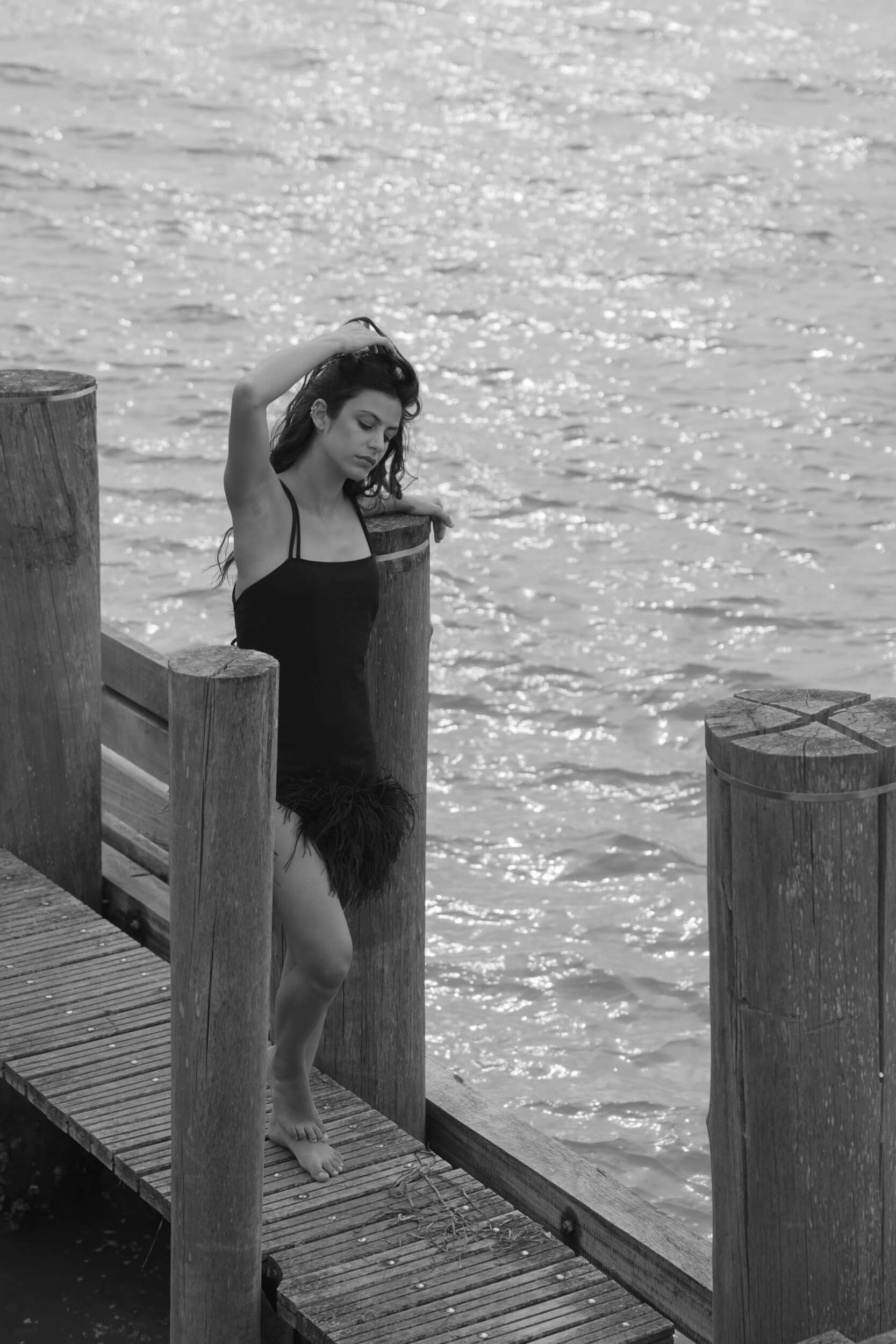
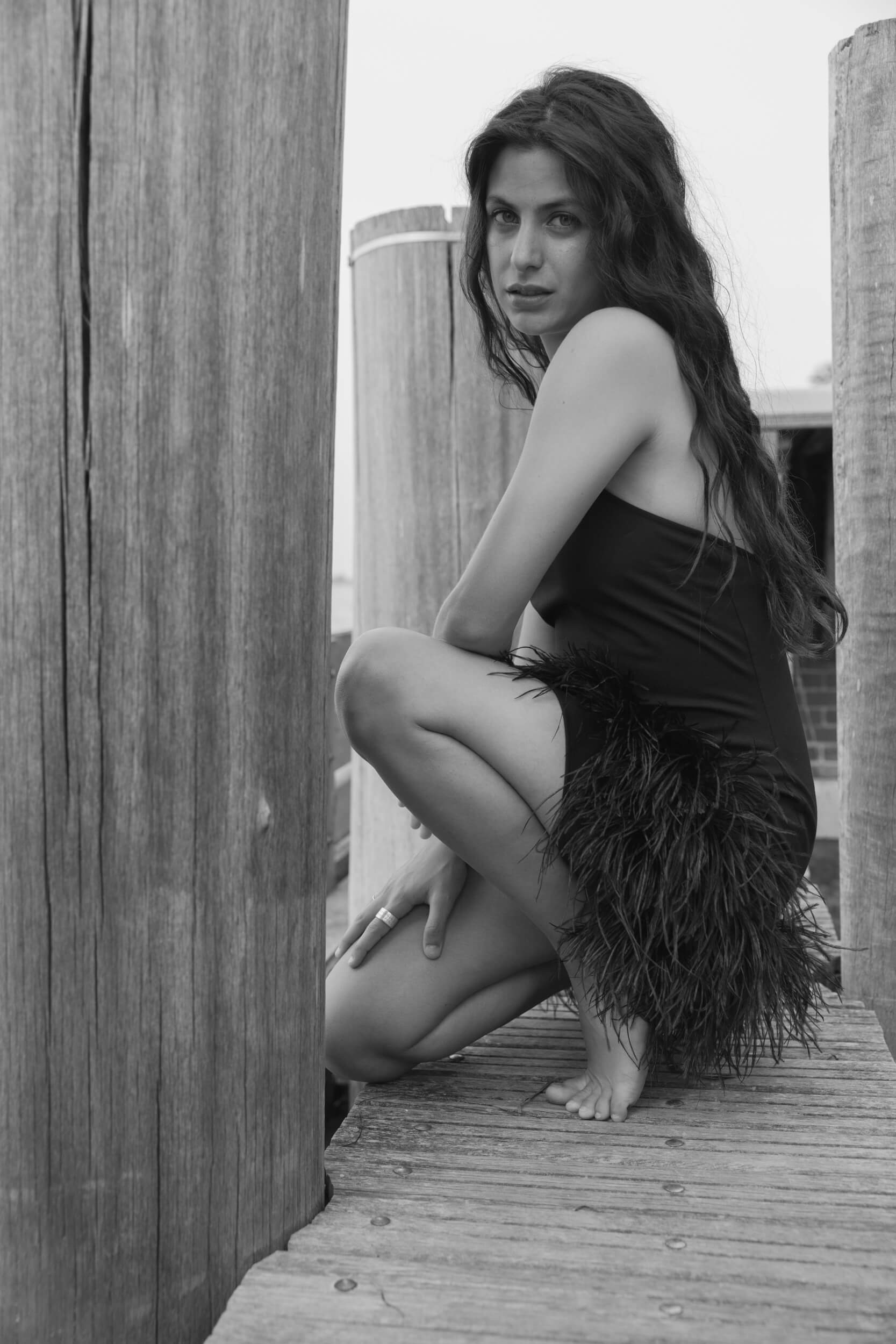
What has been your biggest act of rebellion so far?
My biggest act of rebellion in my life so far… going to bed early and getting a cat.
Your biggest fear?
My biggest fear is definitely the idea of being abandoned, which I think scares everyone. I am a sociable person and need to share and always have people around, so the fear that these people might disappear frightens me. But perhaps my biggest fear is also a bit myself, the idea of convincing myself that I’m not capable of doing something or not being enough. This is my anxiety in life, a constant struggle with myself.
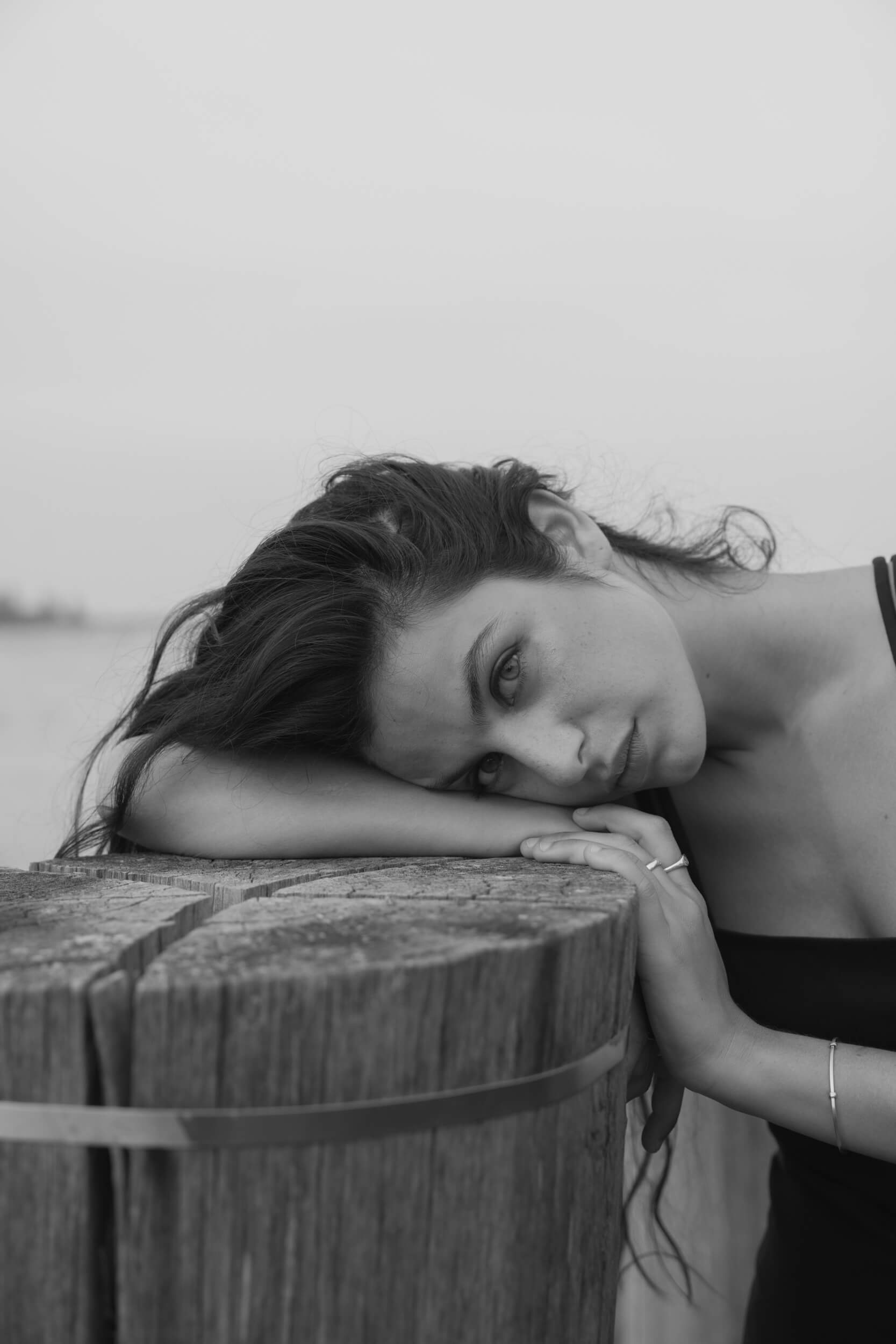
What or who makes you feel safest? And what or who makes you feel most secure in yourself?
What makes me feel safest is my family; in my imagination, it has always been the most protected nucleus where nothing could hurt me, where nothing could enter, since I was little. Growing up, this relationship changes, but yes, they are the only people I would gladly vouch for without thinking twice. What makes me feel most secure? No one. My work, my satisfactions, the fact that I am happy makes me feel more secure because it makes me think I have found a right place in the world.
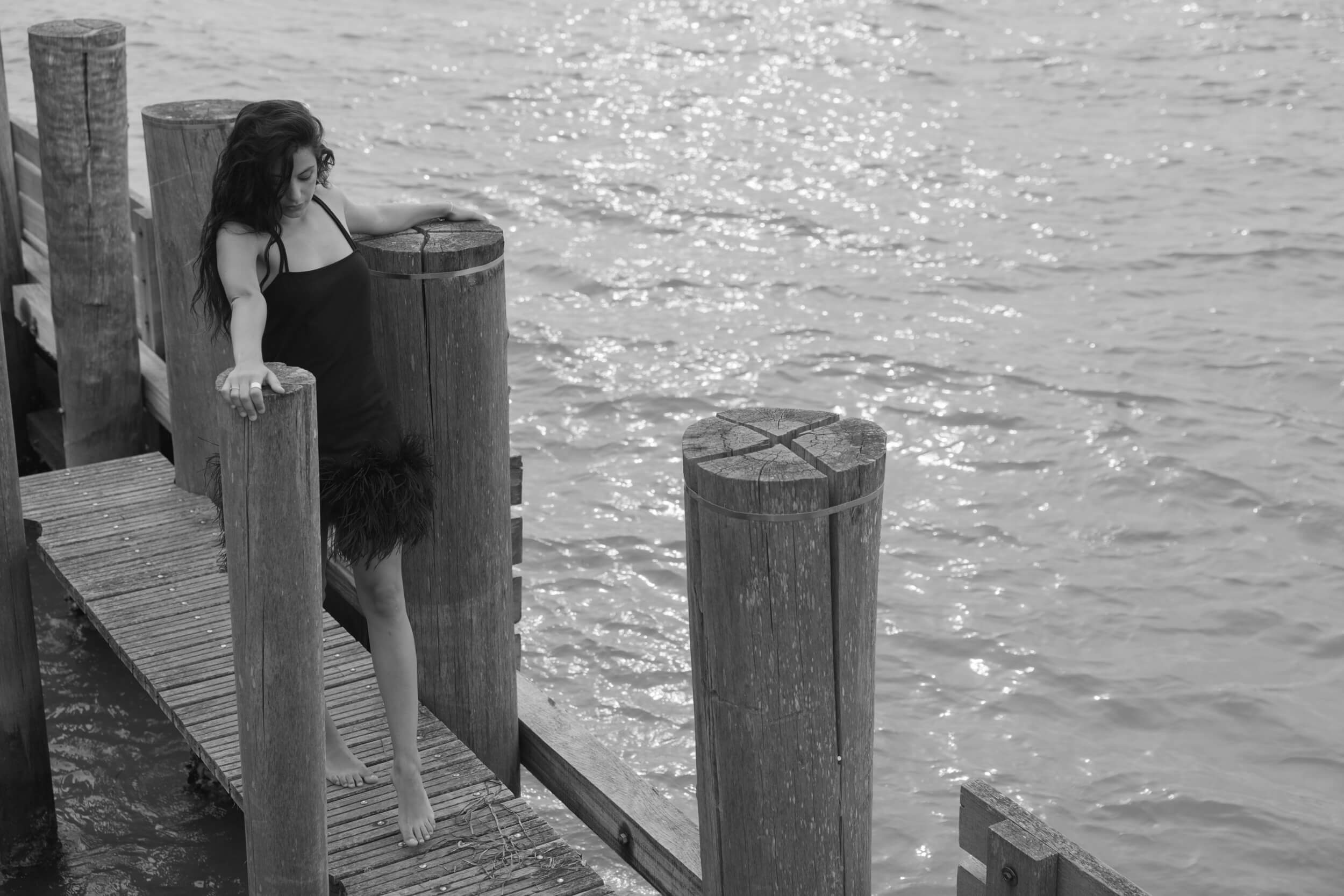
“The fact that I am happy makes me feel more secure”
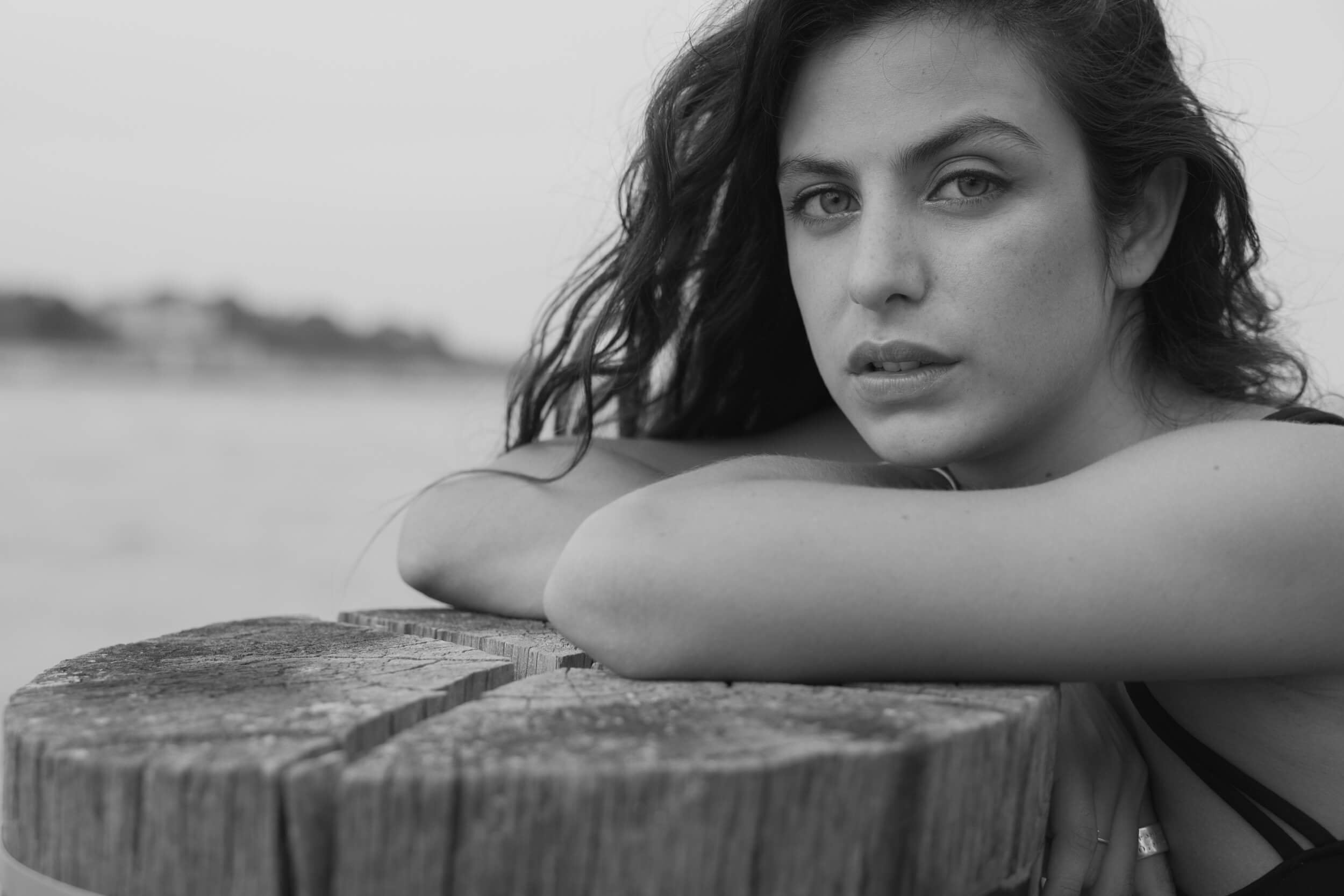
The last thing or person that made you smile?
The last thing that made me smile was when on Sunday evening, I went rock climbing in Paris on an indoor wall, not the assisted one, but the low one of two meters. When I reached the top, I looked down and didn’t want to come down anymore, so I started screaming with all the people watching. That was the last thing that made me smile.
Your happy place?
My happy place is my home, the idea that you open the door to whoever you want, and if you don’t want to, you don’t open it; you close it, and there’s only you inside, and it’s your place. In the morning, you open the windows, and it’s just you. I think it’s enormous freedom, and it makes me deeply happy. Also, the fact of having the choice of a place that is yours and no one else’s, not in terms of material ownership but in terms of your own space.
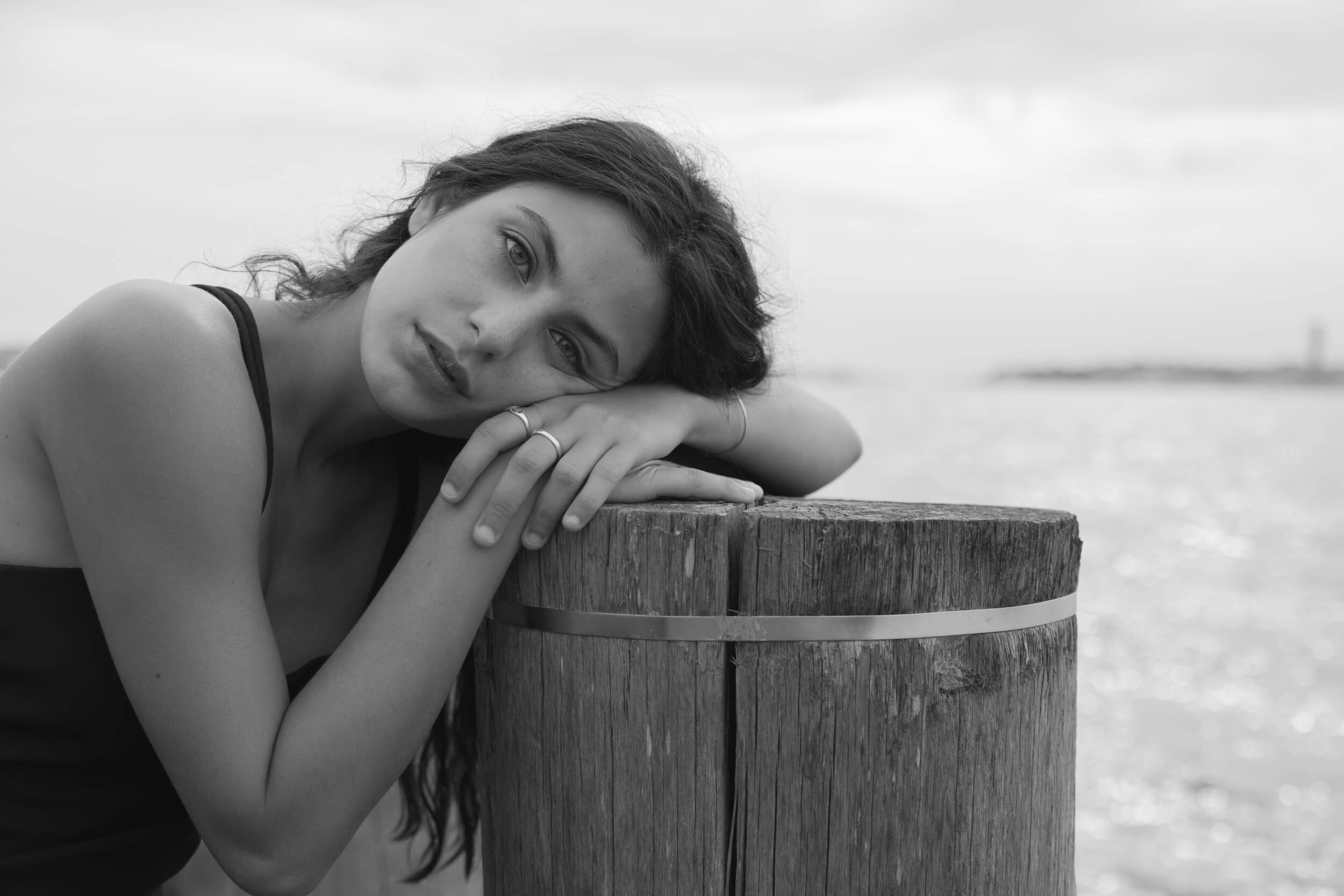
Photos by Johnny Carrano.
Total Look: The Attico.
Thanks to Andreas Mercante & Edoardo Andrini PR Talent Agency.

